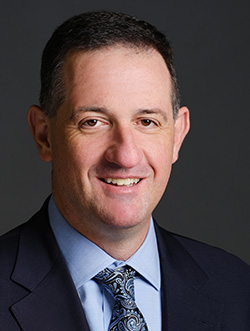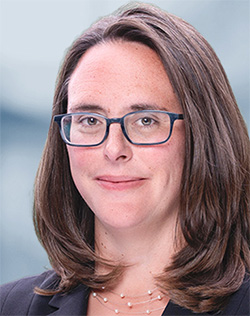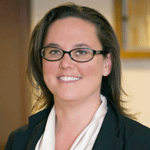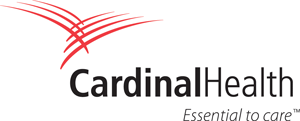

|
|
Cardinal Health sponsors continuing medical educational events for healthcare professionals across the country. You can register for upcoming sessions here, or watch archived webinar recordings at any time, from anywhere. These Cardinal Health sponsored events are presented by esteemed professionals in the world of healthcare and research, and managed by Whitehat Communications to ensure a professional environment. Attend these basic level webinars at no cost - all offer one P.A.C.E.® Continuing Education contact hour for up to six months after the live event. Simply fill out the evaluation after viewing the webinar, and you will receive a follow-up certificate via email. Be sure to check back often for new event postings. For information on Cardinal Health laboratory products, please visit our website here. |
|
Payment & Policy Outlook for Clinical Laboratories in
2026 Live Event: Thursday, January 22, 2026 | 1:00 - 2:00 PM ET P.A.C.E.® Credit available until July 22, 2026 | Florida Lab Credit available |
|
|||||||||||||||||||
|
Recent shifts in the federal policy landscape have significant
implications for agencies such as CMS, CDC, and FDA, which have
the most direct impact on the clinical laboratory industry. This
session will examine key Medicare reimbursement and policy
issues affecting labs and pathologists, including the future of
enhanced premiums under the Affordable Care Act (ACA), the
latest proposed legislation to amend the Protecting Access to
Medicare Act (PAMA), and the status of laboratory-developed
tests (LDTs) oversight. The speaker will also provide insights
into what labs can expect in 2026 based on evolving national
policy developments and trends. This webinar will:
|
Presenter: Dennis Weissman, M.S. Dennis Weissman & Associates LLC, Falls Church, VA  Dennis Weissman is a nationally known consultant for the clinical laboratory and anatomic pathology sectors, Dennis is President of Dennis Weissman & Associates, LLC, a consultancy which provides market intelligence and public policy guidance to health care organizations. His expertise is in Medicare and health care policy as well as business & financial trends affecting the health care industry. Dennis previously founded Washington G-2 Reports (now G2 Intelligence), an information company that reports on the U.S. clinical lab industry. He holds a BA degree in political science from the State University of New York at Buffalo & MS degree in higher education administration from Indiana University. |
|||||||||||||||||||
|
A Real Mouthful: The Intricacies and Complexities of
Pharyngitis Diagnostics Live Event: Tuesday, November 18, 2025 | 1:00 - 2:00 PM ET P.A.C.E.® Credit available until May 18, 2026 | Florida Lab Credit available |
|
|||||||||||||||||||
|
Pharyngitis may seem like a straightforward diagnosis, but the
reality for healthcare professionals is far more complex. It
remains one of the most common reasons patients seek medical
care, making accurate and efficient testing critical. In this
essential webinar, you will learn the latest clinical practice
guidelines for pharyngitis diagnosis and treatment. This session
will provide a deep dive into the common pitfalls of existing
methods and explore new opportunities presented by both
traditional and cutting-edge molecular diagnostics, ensuring you
gain actionable insights to immediately elevate your practice. This webinar will:
|
Presenter: Susan Butler-Wu, PhD, D(ABMM), FIDSA Associate Professor, Clinical Pathology Keck School of Medicine of USC 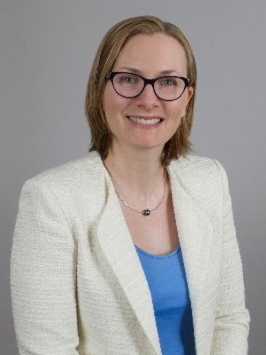 Dr. Butler-Wu is the Director of Medical Microbiology at the Los Angeles General Medical Center and Associate Director of Clinical Microbiology at Keck Hospital of USC. She has authored numerous publications on a variety of topics in clinical microbiology, with a special focus on rapid diagnostics for infection. She is a Diplomate of the American Board of Medical Microbiology and a Fellow of the Infectious Diseases Society of America (FIDSA). |
|||||||||||||||||||
|
Lab Compliance and Test Utilization: Prepare for 2026
and Beyond Live Event: Tuesday, October 28, 2025 | 1:00 - 2:00 PM ET P.A.C.E.® Credit available until April 28, 2026 | Florida Lab Credit available |
|
|||||||||||||||||||
|
Clinical laboratories face increasing scrutiny under evolving
compliance expectations from a myriad of sources, including from
the federal government. Since the original Office of Inspector
General (OIG) compliance program guidance in 1998, through the
2023 updates and the anticipated 2025 revisions, laboratories
have been challenged to keep pace with regulatory requirements
while supporting providers and patients. Missteps in test
utilization—whether through unnecessary full panels, poorly
designed order sets, or reflex testing protocols—can expose labs
to significant compliance, financial, and reputational risk. At the same time, physician ordering behavior often resists change. Habits around ordering practices may conflict with payer medical necessity requirements or create red flags during audits and cross-payer reviews. Without proactive strategies, laboratories risk downstream denials, compliance violations, and strained provider relationships. This webinar will provide a clear framework for understanding compliance expectations for laboratories, with a focus on test utilization monitoring, audit preparedness, and practical approaches to align protocols, requisitions, and order sets with regulatory standards. Participants will gain insights on how to mitigate risk, support physician engagement, and ensure their laboratories remain compliant in a rapidly shifting environment. This webinar will:
|
|
|||||||||||||||||||
|
Data-Driven Optimization of Diagnostic Thresholds Live Event: Tuesday, September 23, 2025 | 1:00 - 2:00 PM ET P.A.C.E.® Credit available until March 23, 2026 | Florida Lab Credit available |
|
|||||||||||||||||||
|
Laboratories often face challenges in ensuring the accuracy and
reliability of test results due to issues such as inconsistent
diagnostic thresholds, variability in assay methods, and the
lack of harmonized reference intervals. These problems can lead
to diagnostic errors, delayed treatments, and suboptimal patient
care. The webinar will provide laboratory professionals with
knowledge and tools to implement data-driven quality improvement
initiatives, for example by learning to evaluate and refine
diagnostic thresholds, identify laboratory operational problems,
and harmonize assay methods. This educational session will equip
participants with the necessary skills to identify and address
key issues in laboratory testing, ultimately leading to improved
laboratory quality and patient care outcomes. This webinar will:
|
Presenter: Jieli Shirley Li, MD, PhD, DABCC, FCACB  Dr. Li holds the position of Associate Professor-Clinical within the Department of Pathology and serves as Director of Pathology Services and Co-Director of the Clinical Chemistry & Toxicology Laboratory. Dr. Li obtained her MD and PhD degrees from the Shanghai Jao-Tong University School of Medicine and completed her fellowship training in clinical chemistry at the MD Anderson Cancer Center. Her professional interests center around enhancing laboratory tests for the in vitro diagnosis, prognosis, and treatment planning of cancer, endocrine disorders, and cardiovascular diseases. |
|||||||||||||||||||
|
Evaluating Urine Fentanyl Tests for Clinical
Implementation Live Event: Thursday, August 21, 2025 | 1:00 - 2:00 PM ET P.A.C.E.® Credit available until February 21, 2026 | Florida Lab Credit available |
|
|||||||||||||||||||
|
Over the past decade, the opioid crisis in the United States has
intensified, largely due to the emergence of the fentanyl
epidemic. Given its extraordinary potency, the ability to detect
fentanyl use has become increasingly vital. Laboratory testing
plays a crucial role across multiple clinical and regulatory
contexts. While mass spectrometry-based confirmatory assays are
widely regarded as the gold standard, urine drug screening
commonly utilizes immunoassay techniques due to their rapid
turnaround time and broad availability. This presentation aims to explore recent advancements in the analytical and clinical performance of various fentanyl immunoassays and discuss practical considerations for their evaluation and implementation. This webinar will:
|
Presenter: Rongrong Huang, PhD, DABCC  Dr. Rongrong Huang is a board-certified clinical chemist and an Assistant Professor of Pathology & Immunology at Baylor College of Medicine. She currently serves as the Director of Clinical Chemistry, Diagnostic Immunology, Point-of-Care Testing and Laboratory Quality at Harris Health Ben Taub Hospital. As a clinical chemist and a 2021 American Society for Clinical Pathology (ASCP) 40 Under Forty honoree, Dr. Huang is dedicated to innovating for improved patient care and advancing laboratory medicine. |
|||||||||||||||||||
|
From Hidden to Found: Giving a Voice to Medical Lab
Science Live Event: Thursday, June 19, 2025 | 1:00 - 2:00 PM ET P.A.C.E.® Credit available until December 19, 2025 | Florida Lab Credit available |
|
|||||||||||||||||||
|
The journey from "hidden" to "found" begins with understanding.
From students embarking on their careers to legislators shaping
healthcare policy, and from nurses providing bedside care to
physicians making critical diagnoses, the question echoes: What
is a Medical Laboratory Scientist? What vital analyses do they
conduct, and how profoundly does laboratory data impact patient
outcomes? For too long, the crucial role of MLS has remained largely unseen, contributing to a looming workforce crisis, funding constraints, and a healthcare system that often misses the power of early detection. This webinar aims to amplify the voice of Medical Laboratory Science. We will explore the challenges facing the profession and illuminate the many areas where individuals across the healthcare spectrum are eager to gain direct insights from laboratorians about the indispensable work happening within the hospital laboratory walls. This webinar will:
|
Presenter: Austin Korczak, MLS (ASCP)  Since graduating from Bemidji State University, Austin has built a diverse career in Medical Laboratory Science (MLS). He gained foundational experience at Park Nicollet, working in both clinical and hospital laboratories for four years before pursuing a travel assignment in Oregon. His path then took a new route with an eight-month volunteer role in AmeriCorps, teaching preschoolers. Returning to his MLS roots, Austin joined Hennepin County Medical Center. Now, Austin is leveraging his skills in a new venture, establishing a coaching business for public speaking while also writing his first novel. His commitment to the field is evident through his ongoing active involvement with ASCLS, where he organizes meetings, speaks at events, mentors students, and engages with congressmen on legislative matters impacting the laboratory. |
|||||||||||||||||||
|
Beyond the Label: Novel Applications of Cardiac
Biomarkers Live Event: Wednesday, May 14, 2025 | 1:00 - 2:00 PM ET P.A.C.E.® Credit available until November 14, 2025 | Florida Lab Credit available |
|
|||||||||||||||||||
|
Cardiac biomarkers, including troponin and natriuretic peptides,
are among the most impactful tools in modern clinical practice.
Troponin is widely used for the detection of myocardial
infarction and cardiac injury, while natriuretic peptides play a
central role in the diagnosis of heart failure. In recent years, the clinical utility of these biomarkers has expanded significantly. Emerging applications include monitoring for cardiotoxicity in patients undergoing cancer therapy, risk stratification in cardiac amyloidosis, identifying subclinical heart failure, and prognosticating outcomes such as acute coronary syndromes in otherwise healthy outpatients. This presentation will explore these evolving roles of cardiac biomarkers, emphasizing clinically relevant thresholds and highlighting how these markers are incorporated into current practice through endorsement by professional guidelines and expert consensus. Attendees will gain insights into how laboratorians can better align with clinical teams to optimize the interpretation and application of these valuable diagnostic tools. This webinar will:
|
Presenter: Christopher W. Farnsworth, PhD, DABCC Associate Professor of Pathology and Immunology Section Head of Clinical Chemistry Division of Laboratory and Genomic Medicine Washington University School of Medicine St. Louis, Missouri  Dr. Christopher Farnsworth completed his PhD at the University of Rochester in Pathology & Laboratory Medicine before completing his post-doctoral research fellowship in Clinical Chemistry at Washington University School of Medicine in St. Louis. He currently serves as Associate Professor of Pathology and Immunology and as the Section Head of Clinical Chemistry in the Division of Laboratory and Genomic Medicine at Washington University School of Medicine in St. Louis, Missouri. |
|||||||||||||||||||
|
The Clinical Lab’s Role in Promoting Better Patient
Outcomes Live Event: Tuesday, April 22, 2025 | 1:00 - 2:00 PM ET P.A.C.E.® Credit available until October 22, 2025 | Florida Lab Credit available |
|
|||||||||||||||||||
|
The clinical laboratory stands at the crossroads of healthcare
diagnostics and care management, providing crucial information
for both acute and chronic conditions. Delivering accurate test
results alone isn't enough to elevate the clinical laboratory
above others that offer reliable services at the lowest price. This webinar will explore how clinical labs can be valuable partners in helping clients achieve the goals of value-based healthcare. You'll learn how to meet pay-for-performance metrics, identify and manage patient risks in risk-adjusted programs, and optimize diagnostic and therapeutic outcomes for all patients, regardless of their healthcare coverage. We'll also discuss the lab's vital role in promoting health equity by ensuring all patients have access to healthcare services, showing how your lab can make a real difference. This webinar will:
|
Presenter: James M Crawford, MD, PhD Professor and Chair Emeritus Department of Pathology and Laboratory Medicine Northwell Health  Dr. James Crawford is Professor and Chair Emeritus of the Department of Pathology and Laboratory Medicine at Northwell Health and the Donald and Barbara Zucker School of Medicine at Hofstra/Northwell. From 2009 to 2023, he served as Department Chair and Senior Vice President for Laboratory Services, leading Northwell Health Laboratories, a major non-profit integrated regional laboratory network serving the Northwell Health system. |
|||||||||||||||||||
|
Chemical Safety in the Workplace Live Event: Tuesday, March 18, 2025 | 1:00 - 2:00 PM ET P.A.C.E.® Credit available until September 18, 2025 | Florida Lab Credit available |
|
|||||||||||||||||||
|
During any workday, healthcare workers may come in contact with
hazardous chemicals. OSHA, founded in 1970, ensures employees a
safe and healthy workplace. OSHA's Hazard Communication Standard
(HCS) is designed to ensure that information about chemical and
toxic substance hazards in the workplace and associated
protective measures is disseminated to workers. This webinar
will review the Hazard Communication Standard (HCS), examine
NFPA (National Fire Protection Association) ratings and labels,
explain the sections of the Safety Data Sheet (SDS), and
identify the process for cleaning up a chemical spill. This webinar will:
|
Presenter: Margaret Blaetz, CLC, MLT(AMT), Mcm, MLT(ASCP), CCCP(AAPOL)  Margaret Blaetz is a distinguished Certified Laboratory Consultant with over 30 years of expertise in the clinical laboratory field. As the CEO and Technical Consultant at East Coast Clinical Consultants, she excels in laboratory compliance and OSHA training. Margaret is a respected voice in the industry, frequently contributing to The Point of Care Testing Network (POCT) and the American Medical Technologists (AMT). |
|||||||||||||||||||
|
2024 CAP Accreditation Checklist Updates Live Event: Wednesday, February 12, 2025 | 1:00 - 2:00 PM ET P.A.C.E.® Credit available until August 12, 2025 | Florida Lab Credit available |
|
|||||||||||||||||||
|
The College of American Pathologists (CAP) publishes an annual
update to its Accreditation Program Checklist requirements.
During this session, the speakers will walk through key changes
to the December 2024 Accreditation Checklists and explain the
rationale behind the changes. Participants will gain a
comprehensive understanding of these changes and steps that
laboratories can take to maintain compliance through the
discussion of the changes and review of scenarios and examples. This webinar will:
|
|
|||||||||||||||||||
|
Lab Payment & Policy Outlook for 2025 Live Event: Wednesday, January 15, 2025 | 1:00 - 2:00 PM ET P.A.C.E.® Credit available until July 15, 2025 | Florida Lab Credit available |
|
|||||||||||||||||||
|
When operating in today’s healthcare environment it’s important
to understand how clinical laboratories are responding to some
key trends influencing today’s larger healthcare landscape.
This session will first analyze current Medicare reimbursement policies and key regulatory issues affecting labs and pathologists. Participants will gain insights into what to expect at the national level in today’s healthcare environment. Understanding how labs are responding to key trends influencing the broader healthcare landscape is crucial. Finally, the speaker will examine the post-election terrain for the healthcare sector and discuss the practical implications for clinical labs. This webinar will:
|
Presenter: Dennis Weissman, M.S. Dennis Weissman & Associates LLC, Falls Church, VA  Dennis Weissman is a nationally recognized consultant specializing in the clinical laboratory and anatomic pathology sectors. As President of Dennis Weissman & Associates, LLC, he offers market intelligence and public policy guidance to health care organizations. With deep expertise in Medicare and health care policy, as well as business and financial trends impacting the health care industry, Dennis is a trusted advisor. Dennis previously founded Washington G-2 Reports (now G2 Intelligence), a leading information company covering the U.S. clinical lab industry. He holds a BA in political science from the State University of New York at Buffalo and an MS in higher education administration from Indiana University. |
|||||||||||||||||||
|
Pre-Analytical Variables and Their Impact in Coagulation
Testing Live Event: Tuesday, December 17, 2024 | 1:00 - 2:00 PM ET P.A.C.E.® Credit available until June 17, 2025 | Florida Lab Credit available |
|
|||||||||||||||||||
|
Pre-analytical variables have long been a source of error in
laboratory testing, particularly within the coagulation
laboratory. Factors such as sample collection, transport, and
processing can significantly impact patient outcomes. Therefore,
it is crucial for laboratories to be vigilant about these
processes and strive to minimize their effects on coagulation
testing. This webinar will explore the potential issues laboratories may face due to pre-analytical variables. Using a case study approach, we will examine various scenarios and offer practical solutions that laboratories can implement. This webinar will:
|
Presenter: Donna D. Castellone, MS, MASCP, MLS(ASCP)SH Laboratory Consultant and Clinical Laboratory Technologist University Hospital, Stony Brook, NY  Donna Castellone’s laboratory career spans 41 years, including 6 years in the industry working on clinical trials in coagulation. She previously served as the Quality Manager for Specialty Testing and the Supervisor for Special Coagulation and Hematology at New York Presbyterian Hospital – Columbia. Although she retired in 2020, Donna returned to Columbia as a research officer and consultant for the hospital laboratory. |
|||||||||||||||||||
|
The Art of Urine Culture Stewardship Live Event: Tuesday, October 8, 2024 | 1:00 - 2:00 PM ET P.A.C.E.® Credit available until April 8, 2025 | Florida Lab Credit available |
|
|||||||||||||||||||
|
Since 2007, Antimicrobial Stewardship programs (ASPs) have been
required for all Joint commission accredited hospitals in the
United States. These programs are a collaboration between
clinicians, laboratorians, and pharmacists to ensure best
practice in reducing patient harm and antimicrobial resistance.
At the University of Kansas Health System, the laboratory has
been successful in partnering for a comprehensive look at
current practices for urinary tract infection (UTI) management
and urine culture evaluation with emphasis on optimal
communication across disciplines. In this webinar, the hosts will share what has made their model for Urine Culture Stewardship successful. The session will deep-dive into principles of interdisciplinary relationship structures essential for wide-impact of stewardship initiatives. Participants will gain knowledge on accessible strategies to apply Urine Culture Stewardship in institutions of all sizes. This webinar will:
|
|
|||||||||||||||||||
|
Collaboration in Extending Respiratory Testing to the
Emergency Department Live Event: Tuesday, September 17, 2024 | 11:00 AM - 12:00 PM ET P.A.C.E.® Credit available until March 17, 2025 | Florida Lab Credit available |
|
|||||||||||||||||||
|
Join experts from the Emergency Department (ED) as they share
real-world experience with clinical and operational examples of
patients exhibiting symptoms related to respiratory illness. In
this session, you will gain an exclusive perspective on
respiratory testing in the ED. The webinar speakers will discuss
strategies for influencing and implementing rapid testing at the
point of care for respiratory infectious diseases, such as
COVID-19, Influenza, RSV, and Group A Strep. This webinar will:
|
|
|||||||||||||||||||
|
Artificial Intelligence and Machine Learning in
Laboratory and Point-of-Care Settings Live Event: Thursday, August 15, 2024 | 1:00 - 2:00 PM ET P.A.C.E.® Credit available until February 15, 2025 | Florida Lab Credit available |
|
|||||||||||||||||||
|
This session will provide a comprehensive look at artificial
intelligence and machine learning in the context of laboratory
and point-of-care testing. It will also explore various use
cases for artificial intelligence and machine learning, and
possible challenges associated with these innovative
technologies. This webinar will:
|
Presenter: Nam Tran, PhD, HCLD (ABB), FADLM Professor and Senior Director of Clinical Pathology UC Davis Health  Dr. Tran is Professor and Senior Director of Clinical Pathology at UC Davis Health and boarded through the American Board of Bioanalysis as a high complexity laboratory director. He specializes in developing and deploying laboratory and point-of-care tests for acute care settings and co-founded the UC Davis Center for Diagnostic Innovation, which he directs. During the COVID-19 pandemic, he led UC Davis Health’s testing strategy and served on the California Governor’s COVID-19 taskforce. |
|||||||||||||||||||
|
Creating a Strong Lab Team: How to Build a Culture of
Caring and Excellence Live Event: Thursday, June 6, 2024 | 1:00 - 2:00 PM ET P.A.C.E.® Credit available until December 6, 2024 | Florida Lab Credit available |
|
|||||||||||||||||||
|
Personnel are the single most decisive factor in the success of
your laboratory. Regardless of how advanced your equipment may
be, it is essential to have qualified and trained employees who
can effectively utilize it. With the intense labor shortage, continued financial pressure, and the demand of having to do more with less, it becomes crucial to recruit and retain the most valuable individuals for your laboratory. How do you find the ideal candidate for the job? How can you provide adequate training to ensure their success? How do you maintain competency and encourage professional development? During this session, you will be introduced to practical methods for discovering, training, and building a laboratory team that is caring and committed to maintaining excellence in laboratory testing. This webinar will:
|
Presenter: Milly Keeler BS MLS (ASCP), CLC (AMT), CCCP® CLIA Specialist, DoctorsManagement LLC Principal/Laboratory Consultant at Keeler Laboratory Consulting, LLC  Milly Keeler is a CLIA Specialist as well as a Laboratory Technical Consultant with DoctorsManagement. In addition, she provides consulting services to clients through her independent company, Keeler Laboratory Consulting, LLC. Milly possesses over 29 years of extensive knowledge and expertise in various laboratory testing disciplines, gained from her work in diverse healthcare environments such as hospitals, physician offices, urgent care facilities, and food service microbiology laboratories. She actively participates as a subject matter expert on the AMT CLMA EQS committee and contributes to CLSI (Clinical Laboratory Standards Institute) on QMS29 and PRE01 workgroups. |
|||||||||||||||||||
|
More Than a Cold: An Update on RSV Prevalence,
Prevention & Testing Live Event: Wednesday, May 29, 2024 | 11:00 AM - 12:00 PM ET P.A.C.E.® Credit available until November 29, 2024 | Florida Lab Credit available |
|
|||||||||||||||||||
|
Respiratory syncytial virus (RSV) is a significant global health
concern, particularly affecting newborns, infants, high-risk
children, pregnant women, and adults over 60. It leads to many
outpatient visits, hospitalizations, and deaths annually. In
children under 5, RSV causes 2.1 million outpatient visits and
58,000–80,000 hospitalizations in the U.S. Additionally, 60,000–160,000 older adults are hospitalized, with 6,000–10,000 deaths in the U.S. each year. In older adults, RSV can lead to more severe complications such as pneumonia and the exacerbation of underlying respiratory conditions like asthma or COPD. The webinar presented by Dr. Temte will educate the listeners on the importance of accurate, rapid, and cost-effective diagnostic tests and how they could significantly improve RSV diagnosis and differentiation from other respiratory illnesses, enhancing patient care. This webinar will:
|
Presenter: Jonathan L. Temte, MD, PhD Associate Dean & Professor University of Wisconsin School of Medicine and Public Health  Dr. Jonathan L. Temte is the Associate Dean for Public Health and Community Engagement at the University of Wisconsin School of Medicine and Public Health, where he also serves as a professor of family medicine and community health. Dr. Temte served on the U.S. Advisory Committee on Immunization Practices from 2008–2015, becoming the first family physician to serve as chair from 2012–2015. He currently chairs the Wisconsin Council on Immunization Practices and is the AAFP representative on the ACIP Work Groups for COVID-19 vaccines and RSV vaccines. |
|||||||||||||||||||
|
Laboratory Stewardship: How to Get Started Live Event: Tuesday, April 23, 2024 | 1:00 - 2:00 PM ET P.A.C.E.® Credit available until October 23, 2024 | Florida Lab Credit available |
|
|||||||||||||||||||
|
Examples of Laboratory Stewardship projects are widespread and
often rely on the creation of a Laboratory Stewardship Committee
to drive success. While this is undoubtedly a great way to start
driving initiatives, sometimes resources are simply not
available or perhaps support for a Stewardship Committee is
lacking. In this presentation, we will explore what it takes to create a Laboratory Stewardship Committee and consider effective alternatives if such a committee is not feasible. In most cases successful initiatives can also be driven by an existing hospital Utilization Committee, Compliance program, or driven by College of American Pathology accreditation requirements, all of which lighten the workload and remove barriers for laboratorians to get started in Laboratory Stewardship today. This webinar will:
|
Presenter Andrew Fletcher, MD, MBA, CPE, CHCQM Founder of Eutilogic Consulting Medical Director of Laboratory Stewardship, Accumen Inc.  Dr. Fletcher is a board-certified anatomic/clinical pathologist, certified physician executive and a fellow of the American Board of Quality Assurance and Utilization Review Physicians. He has significant experience in leading quality initiatives that enhance organizations’ safety and value. He is the founder of Eutilogic Consulting and Medical Director of Laboratory Stewardship at Acumen Inc. His focus areas include laboratory stewardship, laboratory efficiency, and hospital and laboratory quality. |
|||||||||||||||||||
|
Overview of Direct-to-Consumer Testing from the Hospital
Laboratory Perspective Live Event: Wednesday, March 27, 2024 | 1:00 - 2:00 PM ET P.A.C.E.® Credit available until September 27, 2024 | Florida Lab Credit available |
|
|||||||||||||||||||
|
Direct-to-consumer testing (DTC) and Direct Access Tests (DAT)
are tests marketed directly to consumers without involving a
healthcare provider or health insurance company in the process.
Types of these tests vary from general wellness, nutrient
deficiencies to genetic testing that offers information about
individual ancestry composition or health risks for certain
conditions. The process of getting these tests performed is
quite simple: a customer can order a test online and either have
a collection kit delivered directly to their doorstep and send a
sample back to the company for analysis (DTC) or the customer
can go to the laboratory directly where the sample is collected
and analyzed (DAT). There are clear benefits to DTC testing such as self-empowerment of customers, convenience, and anonymity, but also significant challenges, including test utilization and interpretation, burden to healthcare systems and unnecessary stress and extra cost to the consumer if results come back as abnormal. Understanding the limitations of DTC/DAT can help costumers deciding if they want to pursue such testing or if they prefer to rely on their primary care providers. This presentation will provide an overview of different types of DTC/DAT, describe benefits and limitations of such tests, discuss how the process differs from typical testing in the healthcare setting and identify what consumer should look for when choosing a DTC. This webinar will:
|
Presenter: Kornelia Galior, Ph.D., DABCC, FADLM Assistant Professor, Pathology and Laboratory Medicine, Emory University, Atlanta, GA Associate Director of Clinical Chemistry and Medical Director of POCT, Grady Hospital, Atlanta, GA 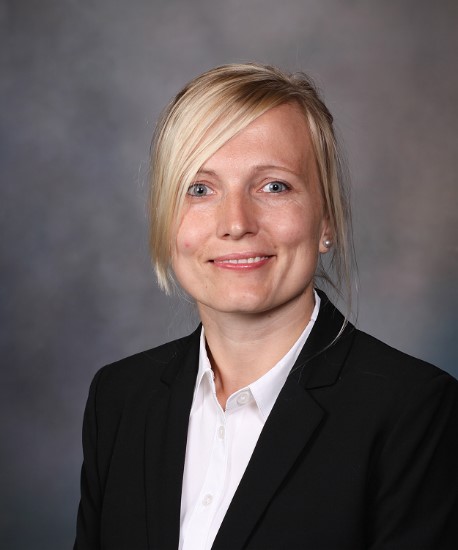 Dr. Galior received a PhD in chemistry from Emory University in Atlanta, GA in 2017 and completed a clinical chemistry fellowship at the Mayo Clinic in Rochester, MN in 2019. She started as a pathology faculty and director of clinical chemistry and POCT at University of Wisconsin in Madison where she practiced for 4 years. She came back to Emory University few months ago where she has oversight of clinical chemistry and POCT. Dr. Galior's interests in the field of laboratory medicine focus on tools that can help detect laboratory errors caused by analytical interferences, biological variations and quality metric |
|||||||||||||||||||
|
Strategies for Ensuring Consistency in Patient Results
Across a Healthcare System Live Event: Wednesday, March 13, 2024 | 1:00 - 2:00 PM ET P.A.C.E.® Credit available until September 13, 2024 | Florida Lab Credit available |
|
|||||||||||||||||||
|
With eight clinical laboratories in multiple locations across
Dr. Li's health system, standardization in pre-analytical,
analytical and post-analytical phases in all eight labs
dramatically improves quality, lowers cost, provides better
efficiency and equivalence of patient results, and presents
opportunities to cross-train staff members. These benefits carry
over to improved quality of care and patient satisfaction.
During this webinar, Dr. Li's approaches and experience in
bringing standardization across her health system will be shared
and discussed. This webinar will:
|
Presenter: Jieli Shirley Li, MD, PhD, DABCC, NRCC, FCACB Assistant Professor, Department of Pathology Co-Director, Clinical Chemistry & Toxicology Laboratory The Ohio State University Wexner Medical Center  Dr. Li obtained her MD and PhD degrees from the Shanghai Jiao-Tong University School of Medicine and completed her fellowship training in clinical chemistry at the MD Anderson Cancer Center. Her professional interests center around enhancing laboratory tests for the in vitro diagnosis, prognosis, and treatment planning of cancer, endocrine disorders, and cardiovascular diseases. |
|||||||||||||||||||
|
Payment & Policy Outlook for Clinical Laboratories in
2024 Live Event: Wednesday, January 17, 2024 | 1:00 - 2:00 PM ET P.A.C.E.® Credit available until July 17, 2024 | Florida Lab Credit available |
|
|||||||||||||||||||
|
With the end of the federal Public Health Emergency, the
clinical laboratory industry is coming to grips with the
business and policy realities at play during this shifting
environment. The webinar speaker will analyze the current
Medicare reimbursement and policy climate affecting labs and
pathologists in the post-pandemic era and help participants to
better understand what to expect in 2024 and beyond from some
noteworthy congressional & regulatory actions. Specific focus will center on the latest updates affecting PAMA payments and policy, the status of proposals affecting CLIA fees and personal requirements, proposed FDA and legislative initiatives involving oversight of laboratory developed tests (LDTs) and several unexpected regulatory “red flags” for labs at the federal level. This webinar will:
|
Presenter: Dennis Weissman, M.S. Dennis Weissman & Associates LLC, Falls Church, VA  A nationally known consultant for the clinical laboratory and anatomic pathology sectors, Dennis is President of Dennis Weissman & Associates, LLC, a consultancy which provides market intelligence and public policy guidance to health care organizations. His expertise is in Medicare and health care policy as well as business & financial trends affecting the health care industry. Dennis previously founded Washington G-2 Reports (now G2 Intelligence), an information company that reports on the U.S. clinical lab industry. |
|||||||||||||||||||
|
2023 CAP Accreditation Checklist Updates: Changes that
Matter Live Event: Thursday, December 14, 2023 | 1:00 - 2:00 PM ET P.A.C.E.® Credit available until June 14, 2024 | Florida Lab Credit available |
|
|||||||||||||||||||
|
This webinar is intended to provide insight on the changes made
to the August 24, 2023 edition of the CAP Accreditation Program
Checklists. It will help laboratories identify relevant
checklist changes and implement strategies to ensure compliance
for their next on-site CAP inspection. Along with the presentation of the checklist changes, the presentation will also include commonly encountered compliance scenarios, as well as answers to frequently asked questions to help participants gain a better understanding of the checklist requirements. This webinar will:
|
|
|||||||||||||||||||
|
Situational Awareness in the Workplace Live Event: Wednesday, November 8, 2023 | 1:00 - 2:00 PM ET P.A.C.E.® Credit available until May 8, 2024 | Florida Lab Credit available |
|
|||||||||||||||||||
|
When a crisis emerges, it is often without signs or warning.
Most organizations have planned for a crisis and have procedures
to follow. Most plans fail to recognize the crucial factors in
effective crisis management: emotional intelligence (EI) and
situational awareness (SA). An emotionally intelligent leader
will handle any crisis better than someone without EI
competencies. A situationally aware leader will comprehend the
given circumstances and address potential risks, hazards, or
events that may occur. This webinar will introduce Situational Awareness, or the ability to see clearly what is happening around you and develop an effective response within seconds. SA gives you the ability to see from the bottom up, everything that is around you, with more perspective. That perspective allows you to clearly assess the situation to make a practical and informed decision. This webinar will:
|
Presenter: Margaret Blaetz, CLC, MLT (AMT), CCCP (AAPOL), CLC(ACHC), MLT, MCM(ASCP) CEO/Technical Consultant, East Coast Clinical Consultants Chief Compliance Officer, Preprogen  Margaret Blaetz is a motivated Laboratory Consultant with more than 30 years of success across the clinical laboratory space. Margaret is the CEO and Technical Consultant at East Coast Clinical Consultants as well as Chief Compliance Officer at Preprogen. Margaret is a frequent contributor to The Point of Care Testing Network (POCT) and the American Medical Technologists (AMT). Her passions include promoting quality laboratory testing through regulatory compliance and continuing education. |
|||||||||||||||||||
|
Upcoming Respiratory Season: An Update Live Event: Wednesday, October 11, 2023 | 1:00 - 2:00 PM ET P.A.C.E.® Credit available until April 11, 2024 | Florida Lab Credit available |
|
|||||||||||||||||||
|
In 2022, as the world was starting to emerge from the pandemic,
we began to see the impact of leaving our social isolation,
physical distancing, and other required mandates like masking
behind. We witnessed what some were calling a “tripledemic” of
flu, COVID, and RSV. As we approach the upcoming 2023-24 respiratory season, it will be important to be aware and prepared for what it might bring. This fall’s landscape is already different, with new vaccines and treatments, like the game-changing antibody that protects kids from RSV, offering new ways to tamp down infections and transmission. We have seen new variants of COVID-19 continue to emerge and the always diabolical influenza virus remains a constant threat. New vaccines and new therapies are here and on the horizon. Emerging and reemerging pathogens leading to a global outbreaks, as well as right here in our backyards, is a complex issue driven by globalization and neglect for preparedness in health security. Obviously, we have reached a dangerous tipping point. The nature of this critical public health and healthcare problem has two primary components: 1) the emergence of diverse and novel pathogens, and 2) the alarming ability of these pathogens to be translocated and transmitted in a wide array of geographic and densely populated regions. This webinar will summarize risk factors associated with common respiratory viruses, describe the diagnostic microbiology, medical laboratory role and molecular epidemiology of these viruses, and discuss the changing epidemiology of these respiratory viruses between the community, healthcare setting and occupational health. This webinar will:
|
Presenter: Rodney E. Rohde, PhD, SM (ASCP)CM, SVCM, MBCM, FACs Global Fellow, Regents’ Professor, Texas State University System  Rodney E. Rohde, PhD is a Regents’ Professor, Texas State University System, University Distinguished Professor and Chair for the Clinical Laboratory Science (CLS) Program in the College of Health Professions at Texas State University. He also serves as Associate Director for the Translational Health Research Center. Dr. Rohde is a Global Fellow, Fellow of the Association of Clinical Scientists, and Honorary Professor of International studies. He is an ASCP board certified Specialist in Virology, Microbiology and Molecular Biology. He spent a decade as a public health microbiologist and molecular epidemiologist with the Texas Department of State Health Services (DSHS) Bureau of Laboratories and Zoonosis Control Division prior to his academic career, including two terms as a CDC Visiting Scientist. |
|||||||||||||||||||
|
The Importance of Independent Quality Control Materials Live Event: Thursday, September 21, 2023 | 1:00 - 2:00 PM ET P.A.C.E.® Credit available until March 21, 2024 | Florida Lab Credit available |
|
|||||||||||||||||||
|
Using an independent quality control material can provide
several advantages over a first- or second-party QC. This
presentation will discuss the difference between manufacturer
and independent quality control materials. Most regulatory organizations recognize that independent quality controls are an important part of an effective lab QC system. This webinar will identify some of the different risks possible when using manufacturer or first party quality control materials compared to independent materials. This webinar will:
|
Presenter: Nico Vandepoele, BSc Global Product Manager Informatics Bio-Rad Laboratories 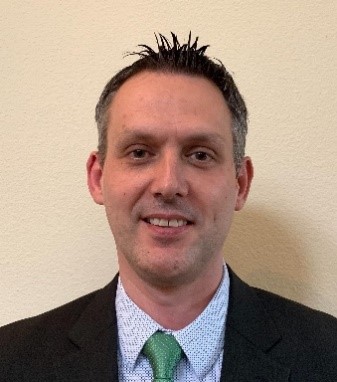 Mr. Nico Vandepoele works as Global Product Manager for Informatics for the Bio-Rad Laboratories Quality Control Division. He works on the Unity and EQAS software development by collecting information about quality control processes from laboratories and regulatory bodies. He also promotes an understanding of laboratory regulations and best practices as they pertain to QC and EQA/PT programs. |
|||||||||||||||||||
|
Stewardship and Quality in Point of Care Respiratory
Testing Live Event: Thursday, August 17, 2023 | 1:00 - 2:00 PM ET P.A.C.E.® Credit available until February 17, 2024 | Florida Lab Credit available |
|
|||||||||||||||||||
|
Join experts as they examine goals and benchmarks for assessing
quality within the laboratory and at the point of care. Gain new
insights on quality measures and methods for laboratory and
clinical teams to improve antibiotic and diagnostic stewardship
related to respiratory infections. Learn how healthcare teams
can collaboratively evaluate and implement new processes with
quality in mind. This webinar will:
|
Presenters: Sandra Sieck, RN President and Owner Sieck Healthcare Consulting Mobile, AL  Joel Mortensen, PhD, FAAM, HCLD Director, Diagnostic Infectious Diseases Testing Laboratory Department of Pathology and Laboratory Medicine Cincinnati Children’s Hospital Medical Center Cincinnati, OH  Moderator: Sean-Xavier Neath, MD, PhD, FACEP Associate Professor of Clinical Emergency Medicine (Recently Retired) University of San Diego San Diego, CA  |
|||||||||||||||||||
|
The Life Cycle of a New Test Request for Point of Care Live Event: Tuesday, June 13, 2023 | 1:00 - 2:00 PM ET P.A.C.E.® Credit available until December 13, 2023 | Florida Lab Credit available |
|
|||||||||||||||||||
|
This webinar will cover steps for reviewing and approving new
test requests. We will breakdown and review the key components
needed to implement new tests, walk through the steps for
implementing a new test once it is approved, and discuss how to
build, test, and maintain a successful IT interface. This
session will also include case studies reviewing decision-making
criteria for adding, or not adding, new POCTs. This webinar will:
|
Presenter: Jeanne Mumford, CLS(ASCP) Manager, POCT Johns Hopkins Hospital 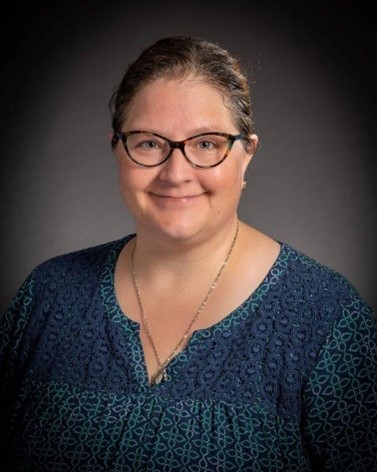 Jeanne Mumford is the Pathology Manager for Point-of-Care Testing (POCT) for Johns Hopkins Medicine. Jeanne offers 23 years of experience in Point-of-Care testing regulatory oversight, quality assurance projects and laboratory inspection preparedness and planning as a medical laboratory scientist (CLS, ASCP certified). She participates in many professional organizations including the Critical and POCT Division of AACC and the CLSI Expert Panel for POCT. |
|||||||||||||||||||
|
Clinician vs. Laboratorian: Conflict or Collaboration? Live Event: Wednesday, May 17, 2023 | 1:00 - 2:00 PM ET P.A.C.E.® Credit available until November 17, 2023 | Florida Lab Credit available |
|
|||||||||||||||||||
|
While laboratorians and clinicians share the same goal, optimal
patient care, they sometimes seem to be working in opposition.
These conflicts are exacerbated by point of care (POC) testing
and the need for operator compliance with laboratory
regulations. In part this is due to different outlooks and ways
of approaching questions. This presentation addresses these and
other sources of conflict and suggests approaches to maximize
cooperation. This webinar will:
|
Presenter: Marcia L. Zucker, PhD President, ZIVD LLC  Marcia Zucker is an independent consultant specializing in all aspects of point of care (POC) diagnostics. Prior to starting her company, Marcia was the Director of Clinical Support for Response Biomedical Corporation. In this capacity, she was responsible for Technical Support, clinical evaluations and developing customer tools for response products, including POC cardiac markers, rapid viral diagnostics, biodefense and environmental assay systems. |
|||||||||||||||||||
|
Labvocate: Amplify Your Voice for Your Profession and
Your Patients Live Event: Tuesday, April 25, 2023 | 1:00 - 2:00 PM ET P.A.C.E.® Credit available until October 25, 2023 | Florida Lab Credit available |
|
|||||||||||||||||||
|
As medical laboratory professionals, we have a responsibility to
advocate for our profession and our patients, but what does
advocacy really mean? This webinar will offer medical laboratory
professionals a crash course in advocacy and government affairs.
Participants will learn how to effectively communicate
laboratory issues to federal and state lawmakers and other
stakeholders. This webinar will:
|
Presenters: Stephanie Noblit Esq., MLS (ASCP)CM Legislative attorney 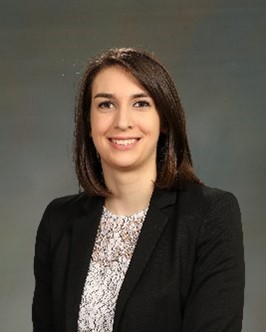 Letycia C. Nuñez Argote, PhD, MPH, CPH, MLS(ASCP)CM Clinical Assistant Professor University of Kansas Medical Center 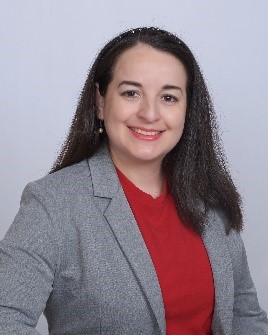 Donna J. Spannaus-Martin, Ph.D., MLS Professor & Program Director, Medical Laboratory Sciences University of Minnesota  |
|||||||||||||||||||
|
The Clinical Lab’s Most Misunderstood Tests: Creatinine,
eGFR, Cystatin C and mGFR Live Event: Tuesday, March 14, 2023 | 1:00 - 2:00 PM ET P.A.C.E.® Credit available until September 14, 2023 | Florida Lab Credit available |
|
|||||||||||||||||||
|
There is great misunderstanding about the value of serum
creatinine in detecting and monitoring changes in kidney
function. Several studies have shown that, by appropriately
monitoring changes in serum creatinine, this test is equally or
more reliable than measured GFR, which is often erroneously
called a “gold standard”. Measured GFR has large variability in
both methodology and physiology. While some have made their
careers on trying to make eGFR equations more “accurate”,
meaning trying to make them agree with mGFRs, this is a
fruitless and unnecessary endeavor. This webinar will:
|
Presenter: John G Toffaletti, PhD, DABCC Professor of Pathology and Director of Blood Gas Lab Clinical Pediatric Lab and Clinic Labs Duke Health System  John Toffaletti has been at Duke University Medical Center since 1979, where he is Professor of Pathology and Director of the Blood Gas Laboratory, the Clinical Pediatric Laboratory, and several Clinic Labs. He is also Chief of Clinical Chemistry at the Durham VA Medical Center. |
|||||||||||||||||||
|
Opportunities and Risks of Direct-to-Consumer Testing Live Event: Wednesday, February 15, 2023 | 1:00 - 2:00 PM ET P.A.C.E.® Credit available until August 15, 2023 | Florida Lab Credit available |
|
|||||||||||||||||||
|
Patients are looking for easy access to laboratory diagnostics
in order to take control of their health. Manufacturers and
laboratories have found a new market by delivering lab tests to
the patient with direct-to-consumer marketing. While the test
menu varies from state to state depending on local laws,
direct-to-consumer tests offer convenience for patients to order
their own tests and either test directly in the privacy of their
home or mail the sample to a laboratory and receive test results
over the internet or via mail in confidence. However, direct-to-consumer testing poses the risk of incorrect result interpretation, variable quality of test results, and overutilization or inappropriate utilization as consumers may not have the medical savvy to make appropriate test selection choices. This presentation will review the opportunities and risks of direct-to-consumer testing. This webinar will:
|
Presenter: James H. Nichols, PhD, DABCC, FAACC Professor of Pathology, Microbiology, and Immunology Medical Director, Clinical Chemistry and POCT Vanderbilt University Medical Center  Dr. Nichols is board certified in both Clinical Chemistry and Toxicological Chemistry by the American Board of Clinical Chemistry. Dr. Nichols spent several years as Associate Director of Clinical Chemistry, Director of Point-of-Care Testing, and an Associate Professor of Pathology at Johns Hopkins Medical Institutions. Dr. Nichols’ research interests span evidence-based medicine, information management, laboratory automation, point-of-care testing and toxicology. |
|||||||||||||||||||
|
Lab Industry Outlook 2023: Latest Reimbursement & Policy
Updates Live Event: Wednesday, January 18, 2023 | 1:00 - 2:00 PM ET P.A.C.E.® Credit available until July 18, 2023 | Florida Lab Credit available |
|
|||||||||||||||||||
|
In effect since early 2020, the ongoing federal public health
emergency has resulted in some wide-ranging challenges and
opportunities for the clinical laboratory industry, including
significant impacts affecting lab reimbursement and regulation.
To help participants better understand what to expect in the
coming year, this webinar will analyze the current policy and
legislative agenda for labs affecting the following key areas:
Medicare reimbursement and PAMA revisions; changes in CLIA fees
and personnel requirements; regulatory and legislative oversight
of laboratory developed tests (LDTs) and red-flag warnings for
labs involving fraudulent and abusive practices. This webinar will:
|
Presenter: Dennis Weissman, MS President, Dennis Weissman & Associates LLC Falls Church, VA  Dennis Weissman is a nationally known independent consultant with expertise in Medicare policy, health care reform and federal regulatory and reimbursement issues affecting clinical and anatomic laboratories and related provider interests. He previously founded and served as publisher of Washington G-2 Reports (now G2 Intelligence), an information company that covers the U.S. laboratory industry via newsletters, research reports, webinars and live conferences. |
|||||||||||||||||||
|
2022 CAP Accreditation Checklist Updates: Changes that
Matter Live Event: Wednesday, December 14, 2022 | 1:00 - 2:00 PM ET P.A.C.E.® Credit available until June 14, 2023 | Florida Lab Credit available |
|
|||||||||||||||||||
|
This webinar is intended to provide insight on the changes made
to the October 24, 2022 edition of the CAP Accreditation Program
Checklists. It will help laboratories identify relevant
checklist changes and implement strategies to ensure compliance
for their next on-site CAP inspection. Along with the presentation of the checklist changes, the presentation will also include commonly encountered compliance scenarios, as well as answers to frequently asked questions to help participants gain a better understanding of the checklist requirements. This webinar will:
|
|
|||||||||||||||||||
|
Respiratory Pathogen Testing at the Point of Care: Lessons
from the Past, What to Use Now, What to Expect Tomorrow Live Event: Monday, November 14, 2022 | 1:00 - 2:00 PM ET P.A.C.E.® Credit available until May 14, 2023 | Florida Lab Credit available |
|
|||||||||||||||||||
|
Diagnostics for respiratory infections are evolving rapidly,
particularly in the context of COVID-19. New technologies and
new tests for emerging and existing pathogens make the testing
landscape increasingly complex. When the testing environment
changes from the lab to point of care (POCT), new questions
arise. The history of POCT has lessons for testing today. This webinar will put current POCT in historical context, review current issues and practices for respiratory viruses, and allow persons involved in performing or overseeing POCT to ask the right questions to maximize testing quality and impact, as well as being able to look toward future technologies and anticipate their role in testing for respiratory infections. This webinar will:
Dr. Campbell's song: Every Patient is Mine |
Presenter: Sheldon Campbell, MD, PhD, FCAP Professor of Laboratory Medicine Yale School of Medicine Pathology and Laboratory Medicine VA Connecticut  Dr. Sheldon Campbell is Professor of Laboratory Medicine at Yale School of Medicine and Associate Chief for Clinical Laboratories for the VA Connecticut Healthcare System. He completed his M.D. and Ph.D. degrees at Baylor College of Medicine in Houston, and did residency and fellowship in Laboratory Medicine at the Yale School of Medicine. He is board certified in Clinical Pathology and Medical Microbiology by the American Board of Pathology. |
|||||||||||||||||||
|
Twists, Turns and Accelerations: The Effect of Pneumatic
Tube Specimen Transport on Clinical Laboratory Testing Live Event: Wednesday, October 19, 2022 | 2:00 - 3:00 PM ET P.A.C.E.® Credit available until April 19, 2023 | Florida Lab Credit available |
|
|||||||||||||||||||
|
In most healthcare settings, specimens are transported to the
clinical laboratory through the pneumatic tube system. These
tube systems provide rapid, efficient, cost-effective, internal
logistical solutions for laboratory specimens and other items
such as blood products, pharmaceuticals and documents.
Notwithstanding these advantages, PTS transport can induce
changes in blood specimens that can interfere with laboratory
analyses. The requested and much-awaited follow-up to our September Lab Briefings event on external specimen transport, this webinar will discuss the impact of pneumatic tube transport on clinical laboratory specimens and strategies to mitigate these impacts so that specimen integrity is maintained during transport. Each PTS is unique and customized to meet the delivery needs of a given institution, and consequently, the impact of transport is difficult to determine prior to commissioning, as it may vary between institutions and even between different routes within the same institution. The webinar will detail studies that can be performed to validate pneumatic tube systems for clinical laboratory specimen transport. This webinar will:
|
Presenter: Christina Pierre, PhD, DABCC, FAACC Clinical Chemist Section Director of Clinical Chemistry and Technical Supervisor of Coagulation  Dr. Christina Pierre is a board-certified (ABCC) clinical chemist who is currently employed as the Director of Chemistry, Toxicology, Immunology and Urinalysis Sections at Penn Medicine Lancaster General Hospital. She received her Ph.D. in molecular and cell biology at McMaster University in Ontario, Canada. She then went on to complete a ComACC accredited clinical chemistry fellowship in the Department of Pathology & Laboratory Medicine at the University of Virginia, before joining Penn Medicine Lancaster General Hospital. |
|||||||||||||||||||
|
Neither Heat, Nor Snow, Nor Gravitational Force: The
Effect of Specimen Transport Conditions on Clinical Laboratory
Testing Live Event: Monday, September 19, 2022 | 12:00 - 1:00 PM ET P.A.C.E.® Credit available until March 19, 2023 | Florida Lab Credit available |
|
|||||||||||||||||||
|
Sample collection, handling, transport, and storage are
essential areas to monitor in the preanalytical phase of
laboratory testing. Before samples reach the clinical laboratory
for analysis, they will often originate at either a remote
collection site or in an inpatient setting. Each unique route
presents numerous difficulties in the maintenance of sample
integrity. This webinar will focus on challenges and practical
solutions associated with external and internal sample
transport, as well as several methods to detect various
preanalytical errors. This webinar will:
|
|
|||||||||||||||||||
|
Test Standardization: Some Practical Guidance Live Event: Thursday, August 25, 2022 | 1:00 - 2:00 PM ET P.A.C.E.® Credit available until February 25, 2023 | Florida Lab Credit available |
|
|||||||||||||||||||
|
The integration of physician practices into IDNs has
fundamentally changed access to care over the past twenty years.
Fewer practices remain independently owned, and the challenge to
provide the best standard of care remains, resulting in a drive
toward standardization. While standardization of care is
critical, one unintended outcome is an increasing need to
integrate the individual physician practice’s testing process
with the current methods and portfolio of the overseeing IDN
core lab. Additionally, the successful path to care requires that clinicians have the lab tests needed to either initiate or modify a patient treatment program during the patient visit. Having the information available during the visit informs the clinical decision process and permits a more productive counseling session with the patient, resulting in greater compliance with the treatment program. The question then remains: how does the need to have tests available during the patient visit balance with the quality and portfolio breadth of testing available through the core lab? This webinar provides some thoughtful and practical thoughts on how to determine the optimal balance. This webinar will:
|
Presenter: Jim Poggi Principal Tested Insights  Jim Poggi is a commercial professional in the lab business, acting as a practitioner, category director, and sales and marketing professional over the course of his career. Jim has a record of achievement in revenue, margin, and category growth from the lens of both the lab manufacturer and distributor. In fact, he successfully developed a complete suite of moderate complexity lab products and launched it into the primary care market, growing share above market rate. Jim is a peer reviewed author in hemoglobin A1C and serves as a member of the Repertoire Magazine editorial board. |
|||||||||||||||||||
|
The Promise and Reality of Next-Generation Sequencing
(NGS)-Based Testing for Diagnosis of Infectious Diseases Live Event: Thursday, June 30, 2022 | 1:00 - 2:00 PM ET P.A.C.E.® Credit available until December 30, 2022 | Florida Lab Credit available |
|
|||||||||||||||||||
|
Molecular diagnostic methods have revolutionized diagnostic
testing for infectious diseases. From real-time PCR to syndromic
multiplex panels, and more recently next-generation sequencing
(NGS), laboratories can now detect pathogen specific nucleic acid
with high sensitivity and specificity without waiting for growth
in culture. NGS-based tests also present the possibility of an
agnostic diagnostic method capable of comprehensive detection of
multiple pathogens simultaneously and directly from a patient
sample. Despite the incredible promise of NGS-based tests for infectious diseases, there are numerous hurdles preventing wide-scale use of this testing for frontline diagnostic, including high cost, long turnaround times, complicated interpretation and, at times, unclear clinical utility. This webinar will review NGS technology compared to traditional molecular methods and describe currently available NGS-based tests, as well as available literature describing its performance and clinical utility. Recommendations for appropriate use and forecasts of prospects will be presented. This webinar will:
|
|
|||||||||||||||||||
|
A Fresh Look at Reflexive Urine Testing Live Event: Tuesday, May 24, 2022 | 1:00 - 2:00 PM ET P.A.C.E.® Credit available until November 24, 2022 | Florida Lab Credit available |
|
|||||||||||||||||||
|
Urinary tract infections (UTIs) represent some of the most
common bacterial infections and affect an estimated 150 million
people worldwide, with a substantial healthcare economic burden.
Urinalysis and urine culture are important laboratory tools in
diagnosing UTIs and identifying patients who need treatment.
Many laboratories use macroscopic (i.e., dipstick) urinalysis as
a screening tool to determine when to reflex urine samples for a
microscopic urinalysis and/or urine culture. However,
evidence-based guidelines regarding optimal reflexive criteria
and workflows for reflexive urine microscopy and reflexive urine
culture are lacking. Standard approaches are hindered by a lack
of harmonization of urinalysis and urine culture practices as
well as heterogeneity in patient populations. This session will summarize studies that have evaluated the analytical and clinical performance of reflexive urine microscopy and reflexive urine culture. The speaker will describe reported clinical outcomes from reflexive urinalysis interventions and their impact on antibiotic stewardship efforts. Finally, the speaker will discuss operational considerations for clinical laboratories in implementing urine reflexive algorithms. This webinar will:
|
Presenter: Allison Chambliss, PhD, DABCC Associate Professor of Clinical Pathology Keck School of Medicine of USC Director of Clinical Chemistry and Point of Care Testing LAC+USC Medical Center  Allison Chambliss, PhD, DABCC, is an Associate Professor of Clinical Pathology at the Keck School of Medicine at the University of Southern California (USC) in Los Angeles. She is the Section Director of Clinical Chemistry and Point-of-Care Testing in the clinical laboratories of the Los Angeles County + USC (LAC+USC) Medical Center. Dr. Chambliss has research interests in validating new diagnostics and biomarkers, procalcitonin and sepsis, and laboratory utilization initiatives. She teaches medical students and Pathology residents at USC. |
|||||||||||||||||||
|
Recruiting Medical Laboratory Staff: An Educator’s Point
of View Live Event: Thursday, April 28, 2022 | 1:00 - 2:00 PM ET P.A.C.E.® Credit available until October 28, 2022 | Florida Lab Credit available |
|
|||||||||||||||||||
|
Clinical laboratories are amidst a severe workforce shortage and
have struggled to recruit and retain qualified staff.
Demographic shifts and consequences of the pandemic have
affected the pool of students in educational programs and led
current professionals to evaluate their continued employment.
Many think that recruitment and retention are the responsibilities of human resources and, to some degree, upper management. This may be true when the workforce is plentiful, but it is less likely to be true in the current environment. This webinar will outline factors that influence career choice and job selection, particularly for post-secondary students, and provide practical suggestions for laboratory staff at all levels to participate in recruitment and retention to the profession. This webinar will:
|
Presenter: Diane Davis, Ph.D., MLS (ASCP)CM, SCCM, SLSCM Director, Medical Laboratory Science Program Salisbury University Salisbury, MD 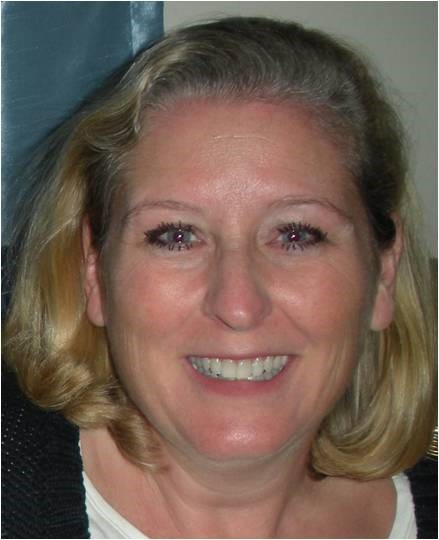 Dr. Diane Davis graduated from Salisbury University in 1980 with a Medical Technology degree, summa cum laude, and in 1989 with a Master’s of Education degree. Dr. Davis later earned her Ph.D. in Clinical Laboratory Science with distinction from Catholic University of America in 2000. She has almost 40 years of full-time and per diem experience in a clinical chemistry, joining the Salisbury University Medical Laboratory Science Program in 1987. Dr. Davis served 25 years as the Clinical Coordinator for the SU MLS Program and began serving as Program Director in 2011. |
|||||||||||||||||||
|
Resiliency in Supply Chain Planning: A Supplier’s View Live Event: Tuesday, March 22, 2022 1:00 - 2:00 PM ET P.A.C.E.® Credit available until September 22, 2022 | Florida Lab Credit available |
|
|||||||||||||||||||
|
Healthcare faces many supply chain threats, exacerbated by
the unprecedented impact of COVID-19 on global planning. The
ability to respond to a disruption through resistance and
recovery in a timely manner defines the resiliency of the
organization. Labs, dependent on critical supplies to support
patients, require resilient supply chains to prevent disruptions
created by supply chain bottlenecks and lack of visibility.
Removing these bottlenecks, providing better transparency and
alternatives, improves results.
This webinar will:
|
Presenter: Peter Bennett, CPIM Vice President, U.S. Demand and Supply Planning Cardinal Health  Peter Bennett is the Vice President of U.S. Demand and Supply Planning for Cardinal Health. In this role, he is accountable for all U.S. demand planning, supply planning, field inventory management/deployment, and key customer collaborative planning, forecasting and replenishment (CPFR) teams. He supports Cardinal Health's U.S. product brands, national brands, Presource, Aero-Med and at-Home Solutions businesses. Bennett earned a bachelor’s degree from the United States Military Academy at West Point, and a Master of Science from Central Michigan University. |
|||||||||||||||||||
|
Lab Industry Outlook 2022: Latest Reimbursement & Policy
Updates Live Event: Wednesday, January 26, 2022 1:00 - 2:00 PM ET P.A.C.E.® Credit available until July 26, 2022 | Florida Lab Credit available |
|
|||||||||||||||||||
|
The unprecedented public health crisis in the COVID era and the
roller coaster effect it has had on the U.S. health care system
has resulted in a turbulent ride for the nation’s clinical
laboratories. Though labs have experienced some key business and
policy adjustments during the pandemic, this has done little to
alter longstanding industry pressure points related to Medicare
and private payor payment and regulatory oversight. This webinar
will explain what lab professionals can expect to see in
reimbursement and policy changes in the year ahead and provide
insights on how these shifts will impact lab organizations. This webinar will:
|
Presenter: Dennis Weissman, MS President, Dennis Weissman & Associates LLC, Falls Church, VA  Dennis Weissman has been an independent consultant for the past decade with expertise in Medicare, health care reform and federal regulatory policies affecting clinical and anatomic laboratories and related health interests. He previously founded and served as publisher of Washington G-2 Reports (now G2 Intelligence), an information company that covers the U.S. laboratory industry via newsletters, research reports, webinars and live conferences. |
|||||||||||||||||||
|
Diabetes Management and the Value of Point of Care
Testing Live Event: Thursday, November 18, 2021 1:00 - 2:00 PM ET P.A.C.E.® Credit available until May 18, 2022 | Florida Lab Credit available |
|
|||||||||||||||||||
|
The number of adults with diabetes in the world is expected to
increase to 700 million by 2045, including as many as 1 in 3 US
adults. Diabetes leads to changes and symptoms in multiple organ
systems. Monitoring and treating these effectively takes time
and attention from the patient and the healthcare team. Yet,
most often these patients are seen and managed in primary care
practices who are often under heavy time and cost containment
pressures. Managing patients diagnosed with diabetes according to the ADA Standards of Care guidelines is critically important, yet overall testing compliance is poor. Only 26.7% of patients diagnosed with diabetes meet targets for glycemic, blood pressure, or cholesterol control. Several studies suggest that POCT for HbA1c is beneficial in multiple areas. Outcomes included in these studies suggested patients had greater understanding and were more satisfied with the state of their disease and treatment and had better glycemic control. Increased compliance with ADA testing frequency, improved operational efficiencies, and better care for under-privileged populations have also been observed in studies investigating POC testing. This webinar will:
|
Presenter: Naseer Ahmed, MD Senior Director, Medical Affairs, Abbott Laboratories  Dr. Naseer Ahmed received his medical degree from the college of Physicians and Surgeons in Pakistan and completed residencies in both Internal Medicine and Cardiology at the Military Hospital in Rawalpindi. Since moving to the United States, Dr. Ahmed has worked for Johnson & Johnson as a Director of Clinical Affairs, St. Jude Medical as a Director of Clinical Research and is currently employed by Abbott Laboratories as a Senior Director of Clinical, Medical & Scientific Affairs. |
|||||||||||||||||||
|
SARS CoV-2 Test Performance Update Live Event: Thursday, October 21, 2021 1:00 - 2:00 PM ET P.A.C.E.® Credit available until April 21, 2022 | Florida Lab Credit available |
|
|||||||||||||||||||
|
SARS CoV-2 emerged in 2019 in Asia and rapidly blanketed the
global population with disease. This pandemic continues to cause
unprecedented morbidity and mortality despite the availability
of effective vaccines and disease control methods including
contact tracing and isolation. Testing is the cornerstone of
contact tracing. The reliability of SARS CoV-2 tests impact both
patient care and public health responses. Due to the reliance on accurate SARS CoV-2 testing for clinical care and disease control efforts, quality management of these tests are critical. Testing methods were rapidly developed and distributed by individuals and diagnostic corporations and offered by clinical, public health and non-traditional testing sites. Are the SARS CoV-2 tests reliable? Proficiency testing results are one method to monitor individual laboratory performance and detect trends in method accuracy for further investigation. This presentation will provide an overview of SARS CoV-2 laboratory diagnostic approaches and analysis of RT PCR proficiency testing performance. This webinar will:
|
Presenter: Frances Pouch Downes, DrPH, HCLD (ABB) Professor, BioMedical Laboratory Diagnostics Program, Michigan State University  Dr. Frances Pouch Downes is current faculty at Michigan State University, with experience teaching courses in microbiology, laboratory management, public health administration and policy, as well as a study abroad program in infectious diseases of Africa Malawi. She holds a Dr.P.H. and MPH from the University of North Carolina Chapel Hill School of Public Health and a BS Medical Technology from Indiana University. |
|||||||||||||||||||
|
Demonstrating the Value of Clinical Laboratory Medicine:
Partnership with Case Management Live Event: Wednesday, September 15, 2021 1:00 - 2:00 PM ET P.A.C.E.® Credit available until March 15, 2022 | Florida Lab Credit available |
|
|||||||||||||||||||
|
The healthcare industry continues to face the challenges
presented by the COVID-19 pandemic. These challenges include
falling margins, flattened revenues, and rising expenses1.
Given the low Diagnosis Related Group (DRG) based reimbursement
under the Centers for Medicare & Medicaid Services (CMS)
prospective payment system, it is more important than ever for
hospitals to focus on quality measures to provide timely and
effective care, prevent complications and deaths, reduce
readmissions, and minimize the overall cost of care. While Case
Management is typically tasked with addressing these issues,
partnership with the clinical laboratory can provide valuable
and unique insight and strategies. Until recently, Case Management and clinical laboratories were thought to be an unlikely partnership. However, this webinar will explore real world examples of how collaboration with the laboratory can improve quality metrics within a hospital and demonstrate the value of the clinical laboratory. Dr. Fletcher will outline laboratory strategies for driving improvement in length of stay, transitions of care, denials in payment, readmissions, and hospital-acquired conditions. Each of these strategies has the potential to save millions of dollars or drive additional revenue while simultaneously improving patient care. 1https://www.kaufmanhall.com/ideas-resources/research-report/national-hospital-flash-report-november-2020 This webinar will:
|
Presenter: Andrew Fletcher, MD, CPE ARUP Medical Director, Consultative Services  Dr. Fletcher is a board-certified anatomic/clinical pathologist and certified physician executive. He has significant experience in leading quality initiatives that enhance organizations’ safety and value. In addition to pathology board certification, he has worked as a Physician Advisor with case management and is a Diplomat of the American Board of Quality Assurance and Utilization Review Physicians. As ARUP’s medical director of Consultative Services, he leads a team of expert consultants focused on hospital quality, laboratory stewardship, laboratory efficiency, and outreach growth. He has helped develop laboratory stewardship programs throughout the U.S., which have captured millions of dollars in cost savings. |
|||||||||||||||||||
|
Strategies for Managing Blood Product Shortages Live Event: Thursday, August 26, 2021 1:00 - 2:00 PM ET P.A.C.E.® Credit available until February 26, 2022 | Florida Lab Credit available |
|
|||||||||||||||||||
|
Blood product shortages arise due to a variety of external
circumstances. Seasonality and severe weather events routinely
disrupt our blood supply. But in today’s pandemic environment,
an entirely new layer of powerful externalities related to
COVID-19 public health interventions are having unintended
negative effects on our blood supply. These necessary public health interventions, such as school closures, work-from-home policies, and stay-at-home mandates, are all creating unprecedented challenges for our nation’s blood collectors. As a result, blood product availability is increasingly unpredictable regardless of the weather or seasonality. This webinar will:
|
Presenter: Chris Godfrey, BBA, MHL Founder & Chief Executive Officer, Bloodbuy  As the founder and CEO of Bloodbuy, Chris Godfrey is responsible for the overall strategic direction and growth of the organization, its technology solutions, and its people. Bloodbuy uses patented technology, developed to seamlessly connect hundreds of hospitals to a nationwide network of independent blood centers. Prior to founding Bloodbuy, Chris focused his energy on a variety of entrepreneurial and institutional investment activities within healthcare, spanning the entire care continuum. |
|||||||||||||||||||
|
Blood Management and Utilization Live Event: Wednesday, June 23, 2021 1:00 - 2:00 PM ET P.A.C.E.® Credit available until December 23, 2021 | Florida Lab Credit available |
|
|||||||||||||||||||
|
Blood product utilization is a critical hospital laboratory
function that is a potential source for both lost revenue and
patient harm. The total dollar cost of red blood cell
transfusion to hospitals is more than four billion dollars per
year with more than 200,000 documented adverse reactions per
year. Blood management is a necessary function to address blood and monetary waste, as well as to protect patients from unnecessary transfusions. This discussion will provide tools and tips to either start your facility on the path to a functioning management program or enhance a program that may already be in place. This webinar will:
|
Presenter: Michael Veri, MLS (ASCP), MS, CPT (US Army)  Michael Veri has been a laboratorian for 18 years with 8 years of director and regional director experience in both civilian and military medical settings. He is the principal author of Laboratory Management 101, a webinar series for the education of current and future laboratory leaders. His work includes both quality improvement and cost savings initiatives such as blood management. |
|||||||||||||||||||
|
Laboratory Finance: 101 and Beyond Live Event: Wednesday, May 19, 2021 1:00 - 2:00 PM ET P.A.C.E.® Credit available until November 19, 2021 | Florida Lab Credit available |
|
|||||||||||||||||||
|
Effective management of a laboratory includes financial
management. How and how much do you get paid for your services?
Do you really know how much it costs to perform your testing? A
clear understanding of both sides of the balance sheet is
necessary to effectively budget and manage the finances of the
laboratory. Regardless of reimbursement models, it is
increasingly necessary to be able to demonstrate an accurate bottom
line, as financial contribution can be an important part of
demonstrating overall laboratory value. In this educational
session, you will learn the basics and beyond of laboratory
finance. This webinar will:
|
Presenter: Jane Hermansen Director, Outreach Consulting and Health Plan Contracting Mayo Clinic  Jane Hermansen has over 30 years of clinical laboratory experience within community hospital and academic medical center settings. At Mayo Clinic since 1988, she currently directs the outreach consulting and health plan contracting network activities for hospital laboratories across the country. |
|||||||||||||||||||
|
Improved Liver Cancer Surveillance with Serum Biomarkers
AFP-L3 & DCP Live Event: Tuesday, April 27, 2021 3:00 - 4:00 PM ET P.A.C.E.® Credit available until October 27, 2021 | Florida Lab Credit available |
|
|||||||||||||||||||
|
Hepatocellular carcinoma (HCC) is the third leading cause of
cancer death worldwide and occurs almost entirely in patients
with chronic liver disease. Unfortunately, most patients are
diagnosed at late stages, thus precluding curative therapies.
However, new biomarkers are available for early detection. This webinar will review the epidemiology of HCC, briefly discuss staging and curative treatment options, and describe in detail the available biomarkers for early detection of HCC, as well as their application. This webinar will:
|
Presenter: Michael Volk, MD, MSc, AGAF, FAASLD Medical Director of Liver Transplantation Division Chief, Gastroenterology and Hepatology Robert and Gladys Mitchell Professor of Medicine Loma Linda University Health  Dr. Volk is the Chief of Gastroenterology and Hepatology, and Medical Director of Liver Transplantation at Loma Linda University. He is triple board certified in Transplant Hepatology, Gastroenterology, and Internal Medicine, and has been frequently selected by Best Doctors as among the top Hepatologists in the country. |
|||||||||||||||||||
|
Medical Laboratory Staffing: Where is Everyone? Live Event: Wednesday, March 31, 2021 1:00 - 2:00 PM ET P.A.C.E.® Credit available until September 31, 2021 | Florida Lab Credit available |
|
|||||||||||||||||||
|
The medical (clinical) laboratory has long been dealing with
employment staffing shortages due to a variety of factors. With
the ongoing COVID-19 pandemic, the laboratory staffing issue has
been revealed as reaching a critical and dangerous breaking
point due to several already known but now amplified challenges.
This webinar will explain several factors including retirements,
burnout, and free agency travelers at the intersection of
laboratory staffing and quality patient healthcare. This webinar will:
|
Presenter: Rodney E. Rohde, PhD, SM(ASCP)CM, SVCM, MBCM, FACSc, Global Fellow Professor & Chair, Texas State University  Dr. Rohde is a passionate advocate for the medical laboratory and public health laboratory profession, as well as a globally recognized science communicator. He loves to mentor students, alumni and colleagues and has received numerous awards and honors during his career. Most recently, he was named to The Pathologist’s Power List 2020. His primary research and subject matter expertise is in rabies and antibiotic resistance, especially MRSA. |
|||||||||||||||||||
|
The New Stark Law and Anti-Kickback Statute Final Rules:
Implications and Considerations for Laboratories Live Event: Wednesday, February 17, 2021 1:00 - 2:00 PM ET P.A.C.E.® Credit available until August 17, 2021 | Florida Lab Credit available |
|
|||||||||||||||||||
|
In late November 2020, the Department of Health and Human
Services published final rules relating to the federal
Self-Referral (Stark) Law and the federal Anti-Kickback Statute
(AKS). The intention of both rules is to update the two legal
frameworks in a way that gives providers greater flexibility to
implement delivery of care structures that embrace care
coordination and value-based programs. Labs remain under intense scrutiny from government authorities. This was highlighted by the fact that clinical laboratories were expressly excluded from certain exceptions and safe harbors in the new final rules. This scrutiny is unlikely to change in the near future. Implementation of new and more innovative structures between healthcare providers will likely only increase investigation and audit activities by government regulators and government payors. Fraud, waste, and abuse initiatives are also expected to increase as a result of the multiple COVID-19 relief programs that have been rolled out over the past nine months. This presentation is designed to provide an overview of the federal Stark and AKS frameworks and highlight the updates that are likely to impact clinical laboratories. Participants will have an overarching understanding of the federal Stark and AKS rules and regulations and will learn the new exceptions and safe harbors applicable to clinical laboratories. This presentation will also highlight some of the well-publicized exceptions and safe harbors from which clinical laboratories are excluded. This will allow participants to help identify proposals and opportunities that may not be acceptable under the updated laws, even if they are acceptable between other providers. This webinar will:
|
Presenters:
|
|||||||||||||||||||
|
Lab Payment and Policy Update & Outlook in the Age of
COVID-19 Live Event: Wednesday, January 27, 2021 1:00 - 2:00 PM ET P.A.C.E.® Credit available until July 27, 2021 | Florida Lab Credit available |
|
|||||||||||||||||||
|
The COVID-19 pandemic has thrust
clinical laboratory testing into the national spotlight and
created unprecedented financial and policy challenges and
opportunities for the laboratory industry. This webinar will
explain how labs are impacted by critical reimbursement and
regulatory changes and trends under both government and
commercial payers. The speaker will also highlight the
healthcare and political dynamics at play for the new
Administration and how they inform the Medicare payment and
policy outlook for labs in 2021. This webinar will:
|
Presenter: Dennis Weissman President, Dennis Weissman & Associates LLC  Dennis Weissman has been an independent consultant for the past decade with expertise in Medicare, health care reform and federal regulatory policies affecting clinical and anatomic laboratories and related health interests. He previously founded and served as publisher of Washington G-2 Reports (now G2 Intelligence), an information company that covers the U.S. laboratory industry via newsletters, research reports and conferences. |
|||||||||||||||||||
|
2020 CAP Accreditation Checklist Updates: Changes that
Matter Live Event: Wednesday, December 16, 2020 3:00 - 4:00 PM ET P.A.C.E.® Credit available until June 16, 2021 | Florida Lab Credit available |
|
|||||||||||||||||||
|
This webinar is intended to provide insight on the changes made
to the June 4, 2020 edition of the CAP Accreditation Program
Checklists. It will help laboratories identify relevant
checklist changes and implement strategies to ensure compliance
for their next on-site CAP inspection. Along with the presentation of the checklist changes, the presentation will also include commonly encountered compliance scenarios, as well as answers to frequently asked questions to help participants gain a better understanding of the checklist requirements. This webinar will:
|
|
|||||||||||||||||||
|
Finding the Right Referral Laboratory Live Event: Wednesday, November 18, 2020 1:00 - 2:00 PM EDT PACE® Credit available until May 18, 2021 | Florida Lab Credit available |
|
|||||||||||||||||||
|
A referral laboratory offers a broad test menu ranging from
routine assays to highly specialized or esoteric assays to
consultative services. Selecting a referral laboratory that
offers the assays or services physicians need to inform patient
treatment decisions can be overwhelming. What questions should
be asked? What criteria are important? How are the answers
analyzed to help with selection? Who should be involved in the
selection process? This presentation will review the process for identifying appropriate qualification criteria and establishing a selection process for selecting a referral laboratory, developing an agreement and implementing processes to utilize the referral laboratory’s services. A variety of metrics will also be presented to assist with evaluating the referral laboratory’s performance. This webinar will:
|
Presenter: Laura McClannan, MT(ASCP)SBB, CQA(ASQ) Quality Director, Oklahoma Blood Institute  Laura McClannan is the Quality Director at Oklahoma Blood Institute (OBI). Laura previously worked at Laboratory Corporation of America as the Vice President of Quality and prior to LabCorp had a long career in Transfusion Medicine and Quality Management. Laura received her Medical Technology degree from the University of Missouri – Columbia and her master’s degree from the University of Alabama at Birmingham. Laura holds a Specialist in Blood Bank certification and is a Certified Quality Auditor through the American Society for Quality. |
|||||||||||||||||||
|
Building the Laboratory and Antimicrobial Stewardship
Relationship to Improve Patient Outcomes Live Event: Thursday, October 29, 2020 2:00 - 3:00 PM EDT PACE® Credit available until April 29, 2021 | Florida Lab Credit available |
|
|||||||||||||||||||
|
The emergence of multidrug-resistant pathogens is primarily
driven by antimicrobial prescribing. Antimicrobial stewardship
programs are now required by regulatory and accreditation
agencies and help play a key role in optimizing antimicrobial
utilization and improve patient outcomes. Microbiology laboratories and antimicrobial stewardship can form key collaborations that are mutually beneficial. This webinar will provide an overview of antimicrobial stewardship programs and describe how microbiology laboratories serve an integral role in promoting appropriate antimicrobial utilization, optimizing patient outcomes, and decreasing infection rates. This webinar will:
|
Presenter: Jerod Nagel, PharmD, BCIDP Pharmacy Lead, Infectious Diseases & Antimicrobial Stewardship Program University of Michigan Hospital and Health Systems  Dr. Nagel is currently the pharmacy lead for the Infectious Diseases and Antimicrobial Stewardship program at the University of Michigan Hospital and Health Systems. He graduated from Purdue University and completed Infectious Diseases residency at Meriter Hospital in Madison, Wisconsin. He directs the infectious diseases residency and holds a faculty appointment as Adjunct Clinical Assistant Instructor. |
|||||||||||||||||||
|
A Critical Evaluation of Critical Value Notification Live Event: Wednesday, September 30, 2020 1:00 - 2:00 PM EDT PACE® Credit available until March 30, 2021 | Florida Lab Credit available |
|
|||||||||||||||||||
|
The webinar will explore the role that laboratories play in
critical value notification to patient care teams. The landscape
of resources available to benchmark thresholds for notification
will be discussed and considerations for setting critical
values. Evaluating glucose critical values and how evolving
recommendations for management of hypoglycemia are impacting
critical value thresholds will be used as a case study. This webinar will:
|
Presenter: Steven W. Cotten, PhD Assistant Professor, Pathology and Laboratory Medicine Director of Automated Chemistry and Critical Care Testing University of North Carolina at Chapel Hill  Dr. Cotten is Director of Automated Chemistry and Critical Care Testing at UNC Hospitals Medical Center. He is an assistant professor in Pathology and Laboratory Medicine at the University of North Carolina at Chapel Hill. He received his PhD in Pharmaceutical Sciences from the School of Pharmacy at the University of North Carolina at Chapel Hill. |
|||||||||||||||||||
|
COVID-19 Serology: Implementation, Clinical Utility, and
Outstanding Questions Live Event: Wednesday, August 26, 2020 1:00 - 2:00 PM EDT PACE® Credit available until February 26, 2021 | Florida Lab Credit available |
|
|||||||||||||||||||
|
Severe Acute Respiratory Syndrome Coronavirus 2 (SARS-CoV-2),
the causative agent of coronavirus disease 2019 (COVID-19), has
led to significant morbidity and mortality throughout the world.
As a result, there has been a dramatic availability of
serological assays for COVID-19 and often considerable pressure
on laboratories to adopt these assays. However, the clinical
utility of SARS-CoV-2 serological assays is not fully
elucidated, the test performance between assays may vary
considerably, and the guidelines for implementation and
reporting onerous. This webinar will address these important
issues for SARS-CoV-2 serological testing with a focus on
implementation and how to guide health care providers when
ordering testing. This webinar will:
|
Presenter: Christopher W. Farnsworth, PhD Instructor, Pathology and Immunology Washington University, St. Louis, MO  Dr. Farnsworth is an instructor of Pathology and Immunology at Washington University in St. Louis and a Medical Director of clinical chemistry and point of care testing at Barnes Jewish Hospital. He has assessed multiple serological assays for SARS-CoV-2 and has overseen their implementation for clinical use. Dr. Farnsworth’s research laboratory is actively engaged in assessing SARS-CoV-2 serological assays including correlating commercially available assays with protection, assessing their analytical performance, and their utility for prognostication. |
|||||||||||||||||||
|
The Importance of Information Technology for your
Outreach Program Live Event: Wednesday, June 24, 2020 1:00 - 2:00 PM EDT PACE® Credit available until December 24, 2020 | Florida Lab Credit available |
|
|||||||||||||||||||
|
Expectations of the laboratory from clients are changing. It is
no longer okay just to offer interfaces. There are many new
complexities in laboratory ordering, resulting, billing and
overall customer service that the laboratory needs to address.
Information Technology plays a major role in every aspect of
your program. From ordering in the practice, patients presenting
in your Patient Service Centers, to the generation of the final
bill. Organizations all have different suites of applications that are used within the laboratory. This webinar is designed to help you understand systems available to help you maximize the benefit of your existing applications. It will offer suggestions on how to get clean orders into your laboratory, deliver results in the way your physicians want to see them, and make the process of having lab work completed easy for your patients. This webinar will:
|
Presenter: Marci Dop MT(ASCP), MBA Laboratory IT Executive and Consultant  Ms. Dop has worked as an independent consultant for many years working with numerous labs including academic medical centers, large health systems, independent labs and specialty labs. She has also served in various leadership roles including CIO of a large reference lab in California and System Vice President of a large health system. She has managed many laboratory integrations and consolidations, multiple system selection and implementations and specializes in process improvement that include both operational workflow and IT applications that support the workflow. |
|||||||||||||||||||
|
Lab 2.0 - The Golden Age of the Clinical Laboratory: Reshaping the Way Healthcare is Delivered Live Event: Wednesday, May 27, 2020 1:00 - 2:00 PM EDT PACE® Credit available until November 27, 2020 | Florida Lab Credit available |
|
|||||||||||||||||||
|
The world of healthcare is changing – the clinical laboratory is
changing with it. As healthcare shifts from fee-for-service to
value-based reimbursement, the current lab model is not
sustainable. While the traditional, transactional lab model
continues to serve as a foundation, the emerging Clinical Lab
2.0 business model leverages longitudinal laboratory data to
product actionable, clinical insight, driving better outcomes
and financial stakeholders alike. The Clinical Lab 2.0 Movement is helping to empower laboratory leaders, and clinical lab scientists to drive population-level programmatic initiatives that quantifiably improve patient outcomes, reduce the cost of care and align with the future of value-based healthcare. This webinar will:
|
Presenter: Khosrow Shotobrani,
President and Executive Director Project Santa Fe Foundation -
“Clinical Lab 2.0 Movement” Founder and CEO, Lab 2.0 Strategic Services LLC  Khosrow Shotorbani is the CEO and founder of the newly established Lab 2.0 Strategic Services, LLC. He is a member of the board, and President, Executive Director of Project Santa Fe Foundation, advocating for Clinical Lab 2.0 Movement. Mr. Shotorbani was instrumental in the creation of Project Santa Fe - a initiative with like-minded executives - helping to drive new frontiers that will define future economic valuation and placement of diagnostic services and practice of laboratory Medicine. |
|||||||||||||||||||
|
Laboratory Interpretive Services: Taking Your Lab to the Next Level in Meeting Medical Needs Live Event: Wednesday, April 22, 2020 1:00 - 2:00 PM EDT PACE® Credit available until October 22, 2020 | Florida Lab Credit available |
|
|||||||||||||||||||
|
Laboratory testing is an integral part of clinical
decision-making. Yet, physicians are challenged with ordering
the right test for their patient that will best answer their
clinical question. Laboratories don’t make it easy, with
multiple tests that have similar names and multiple names for
the same test. The consequence is clinical confusion that causes
doctors to order the wrong tests, miss the necessary tests and
overuse the laboratory. Physicians also have less time to keep
up with best practice literature given the rapid addition of
genetic, molecular and other diagnostic tests to the market. The
laboratory can help by providing interpretive services. A team
of experts reviews the patient’s chart, orders the appropriate
tests and provides a concise interpretive narrative based upon
best practices and medical evidence for the clinician. This webinar will explore examples of how a laboratory can add value by providing interpretive services to the physician that will save money, enhance laboratory efficiency, decrease unnecessary testing, and improve adherence to current best practices. This webinar will:
|
Presenter: James H. Nichols Ph.D., DABCC, FAACC Professor of Pathology, Microbiology and Immunology Medical Director, Clinical Chemistry and Point-of-Care Testing Vanderbilt University School of Medicine  Dr. Nichols is board certified in both Clinical Chemistry and Toxicological Chemistry by the American Board of Clinical Chemistry. He spent several years as Associate Director of Clinical Chemistry, Director of Point-of-Care Testing, and an Associate Professor of Pathology at Johns Hopkins Medical Institutions. Jim later served as Medical Director of Clinical Chemistry for Baystate Health in Springfield, MA and was a Professor of Pathology at Tufts University School of Medicine. Dr. Nichols’ research interests span evidence-based medicine, information management, laboratory automation, point-of-care testing and toxicology. |
|||||||||||||||||||
|
Three Percent is For Wimps: Achieving and Maintaining
Blood Culture Contamination Rates Below 1% Live Event: Tuesday, February 25, 2020 1:00 - 2:00 PM EST PACE® Credit available until August 25, 2020 | Florida Lab Credit available |
|
|||||||||||||||||||
|
Blood Culture Contamination is an enormous problem in healthcare
delivery systems everywhere, costing facilities on average over
$1 million every year1.
The current industry average of 3 percent2 is neither acceptable
nor sustainable in today's climate without serious consequences
to patients treated unnecessarily, a healthcare facility's
financial wellbeing, and contribution to the global threat of
antibiotic resistance. This presentation will include discussions on the most commonly committed errors in the collection of blood cultures that lead to contamination and false positives, the impact of contaminated cultures on the patient and the facility, and sustainable strategies to reduce blood culture contamination to one percent or less. Strategies will not only include effectively correcting human error, but effective tracking, staff commitment, and emerging technologies. 1 Albert, R. K., & Zwang, O. (2017, May 29). Improving Cost Effectiveness of Blood Cultures. Retrieved from https://www.journalofhospitalmedicine.com/jhospmed/article/126938/improving-cost-effectiveness-blood-cultures. 2 Ford, A. (2017, October 4). With diversion, lower blood culture contamination rates. Retrieved from http://www.captodayonline.com/diversion-lower-blood-culture-contamination-rates/ This webinar will:
|
Presenter: Dennis J. Ernst MT (ASCP), NCPT(NCCT) Director, Center for Phlebotomy Education, Inc.  Dennis J. Ernst is the Director of the Center for Phlebotomy Education, Inc. in Cheboygan, Michigan, which creates standards-based educational materials on diagnostic blood collection. Besides being a highly recruited international lecturer, he has authored of over 50 articles on phlebotomy, two textbooks and three desk references. He is a member of the CLSI Board of Directors and has chaired multiple committees that write and revise industry standards for specimen collection. He has served as the editor of Phlebotomy Today since its founding in 2001, which is read monthly by over 14,000 healthcare professionals worldwide. |
|||||||||||||||||||
|
Reimbursement & Policy Outlook for Labs in 2020 Live Event: Thursday, January 29, 2020 1:00 - 2:00 PM EST PACE® Credit available until July 29, 2020 | Florida Lab Credit available |
|
|||||||||||||||||||
|
Fast changing developments in how clinical laboratories are
reimbursed by government and commercial payers and shifts in the
rules under which labs and their personnel operate requires
everyone working in the industry to understand the emerging
policy challenges affecting the financial viability and
competitive dynamics of lab companies and organizations. This webinar will present an overview of the latest changes affecting payment for clinical laboratory services including a third round of Medicare cuts up to 10 percent for many lab tests under a market-based fee schedule required by the Protecting Access to Medicare Act (PAMA) along with current legal and legislative measures to modify PAMA. Meantime, a series of federal regulatory initiatives affecting the way labs and their personnel operate will be detailed including: proposed Stark and anti-kickback regulations; CLIA policy revisions; guidance status for Eliminating Kickbacks in Recovery Act (EKRA); FDA actions affecting pharmacogenetics testing; and lab data breeches and HIPAA requirements. This webinar will:
|
Presenter: Dennis Weissman President, Dennis Weissman & Associates, LLC  A nationally known, independent analyst, consultant and thought leader for the clinical laboratory and anatomic pathology sectors for over three decades, Dennis is President of Dennis Weissman & Associates, LLC, Falls Church, VA, a consultancy, which provides market intelligence, M&A advisory services, business leadership and public policy advice to diagnostic and life science companies and organizations. Mr. Weissman has expertise in Medicare and health care reform policies and trends; clinical laboratory and pathology payment & compliance policies as well as business trends affecting the diagnostic sector. |
|||||||||||||||||||
|
2019 CAP Accreditation Checklist Updates: Changes That
Matter Live Event: Thursday, December 12, 2019 1:00 - 2:00 PM EST PACE® Credit available until June 12, 2020 | Florida Lab Credit available |
|
|||||||||||||||||||
|
The College of American Pathologists (CAP) checklists explain
the accreditation requirements of the program and are updated
yearly to reflect current practices and technologies. The main
purpose of the checklist is to be utilized as a guide for the
laboratory to ensure quality and patient safety. On September 17
the 2019 checklist edition was published and is currently in the
field for CAP laboratory inspections. This webinar will provide insight into the key changes of the CAP Laboratory Accreditation Program checklist requirements and use CAP resources to identify checklist updates. Finally, as an attendee you will learn about best practices and tools that your laboratory can use to implement the necessary changes. This webinar will:
|
|
|||||||||||||||||||
|
What’s in a Name? Nomenclature Changes and the Impact on
Microbiology Live Event: Wednesday, November 20, 2019 1:00 - 2:00 PM EST PACE® Credit available until May 20, 2020 | Florida Lab Credit available |
|
|||||||||||||||||||
|
This presentation will be of interest to laboratory
professionals regarding the name and technology changes, and the
impact that they have on diagnostics and patient treatment. The Age of Automation and Molecular Diagnostics in the microbiology laboratory is changing the nature of diagnostics and the microorganisms. This presentation will discuss the extensive changes in taxonomic classification across the bacteria, fungi and parasites as a result of molecular diagnostics. The nomenclature changes will likely affect patient treatment and outcomes. In order to effectively identify organisms, laboratories must consider balancing traditional microbiology with automation and molecular techniques to fit not only the patient population and workflow but also available expertise and budget. There is no one size fits all in a microbiology lab, and just because you can, does not mean you should, but “what’s in a name”, is more than meets the eye. This webinar will:
For further information on microbiology nomenclature, visit the following:
|
Presenter: Patricia Tille Ph.D. MLS(ASCP) FACSc Graduate Program Director, University of Cincinnati Author, Bailey and Scott’s Diagnostic Microbiology Textbook and Chair, Microbiology Advisory Committee for the International Federation of Biomedical Laboratory Science  Dr. Tille is the well-known author of the textbook Bailey and Scott’s Diagnostic Microbiology and has published a variety of articles in numerous scholarly journals related to education, research and clinical practice. She has been recognized for her professional achievements in Microbiology twice (2005 and 2019), and Molecular Diagnostics (2011) by the American Society for Clinical Laboratory Science and Cardinal Health as a three-time nominee for the UR Essential Recognition as one of the top laboratory professionals in the U.S. |
|||||||||||||||||||
|
Implementing a Successful Patient Blood Management
Program Live Event: Wednesday, October 30, 2019 1:00 - 2:00 PM EST PACE® Credit available until April 30, 2020 | Florida Lab Credit available |
|
|||||||||||||||||||
|
Patient blood management (PBM) is an evidence-based approach to
optimizing the care of patients who might need transfusion. A
focus on improved patient care and economic and operational
pressures are leading key industry thinkers to examine
appropriate blood usage. PBM programs can achieve these goals by
reducing variation in transfusion practice.1 In this webinar, you will learn key factors that lead to success in shifting a public academic medical center culture and practice surrounding red blood cell transfusions. Our team’s change management strategy included executive alignment and organizational transformation based on a centralized vision. Despite barriers, our improvement in utilization has continued for more than two years reflecting remarkable sustainability. 1Advancing Transfusion and Cellular Therapies Worldwide: http://www.aabb.org/pbm/Pages/definitionsconcepts.aspx This webinar will:
|
Presenter: Sarah E Barnhard, MD Assistant Clinical Professor and Medical Director of Transfusion Services University of California-Davis Health  Dr. Sarah Barnhard is currently the Medical Director of Transfusion Services for UC-Davis Health and chair of the hospital’s Transfusing Wisely blood utilization committee. She completed her medical school training at Weill-Cornell Medical College in New York followed by anatomic and clinical pathology residency with a blood banking/transfusion medicine fellowship at UC-Davis. |
|||||||||||||||||||
|
Pros and Cons of Selling the Laboratory Live Event: Wednesday, September 25, 2019 1:00 - 2:00 PM EST PACE® Credit available until March 28, 2020 | Florida Lab Credit available |
|
|||||||||||||||||||
|
Outsourcing laboratory services can produce short-term cost
savings with long-term consequences. This presentation will
describe current market challenges including, economic,
regulatory and technological considerations that often drive
outsourcing arrangements. We will explore potential partnership
structures including acquisition, joint venture, lab management
and consultative services and the pros and cons of each
strategy. We will then examine the financial contribution that
hospital laboratories bring to their health systems. By the
conclusion of this presentation, laboratorians will be able to
articulate the value of the laboratory to administrators and
executives. This webinar will:
|
Presenter: Andrew Fletcher, MD, CPE ARUP Medical Director, Consultative Services  Dr. Fletcher is a board-certified anatomic/clinical pathologist and certified physician executive with significant experience in leading quality across an organization and reducing clinical variation to effectively drive safety and value. He has a doctor of medicine degree from the Mercer University School of Medicine in Georgia and is currently pursuing his MBA from the University of Massachusetts at Amherst. Dr. Fletcher has received numerous awards for quality and utilization, including research grants for blood utilization. |
|||||||||||||||||||
|
Quality in the Coagulation Laboratory Live Event: Wednesday, August 28, 2019 1:00 - 2:00 PM EST PACE® Credit available until February 28, 2020 | Florida Lab Credit available |
|
|||||||||||||||||||
|
Coagulation is a complex discipline that includes many
variables. Different reagent composition including the type of
phospholipids and activating agents, instability of samples as
well as pre-analytical variables all contribute to outcomes. It
is important to understand how these variables impact the
quality of results reported out by the coagulation laboratory.
Quality in the laboratory is not a given and can result in the
misdiagnosis of a bleeding or thrombotic event. This webinar will look at common practices in the coagulation laboratory and how these variables can impact quality. This session will also provide laboratories with practices that can help improve coagulation results and patient outcomes. This webinar will:
|
Presenter: Donna D. Castellone, MS, MASCP MT(ASCP) SH QA Manager, Specialty Testing Supervisor, Special Coagulation and Hematology New York Presbyterian- Columbia Medical Center  Donna is the Quality Assurance (QA) Manager for Specialty Testing and Supervisor of Special Coagulation and Special Hematology at New York Presbyterian Hospital- Columbia in New York City. She has 36 years of clinical laboratory experience and 6 years of industry clinical trial experience, including PhD work on Standardization of Laboratory Testing (all but dissertation). |
|||||||||||||||||||
|
The Role of the Hospital Laboratory in Antibiotic
Stewardship Live Event: Wednesday, June 19, 2019 1:00 - 2:00 PM EST PACE® Credit available until December 19, 2019 | Florida Lab Credit available |
|
|||||||||||||||||||
|
In today’s evolving healthcare environment, clinicians are
dealing with a global challenge of multidrug-resistant organisms
(MDROs) and adverse drug events while trying to reduce health
care costs and improve patient care. According to the CDC,
antibiotic-resistant infections affect at least 2 million people
in the U.S. annually and result in more than 23,000 deaths.1 As a way to
combat this growing concern, antimicrobial stewardship programs
have been designed to optimize the management of infectious
diseases. However, this cannot be done without the collaboration
among several teams within a healthcare system. This program will provide an overview of the essential role the hospital laboratory plays in the conduct of institutional antibiotic stewardship programs. The program will focus on issues currently impacting the hospital laboratories, including rapid diagnostic testing, antimicrobial susceptibility reporting, and the use of select biomarkers in the management of infectious diseases. This webinar will:
1The Importance of an Antimicrobial Stewardship Program, Federal Practitioner; September 2015;32(9):20-24, Roula Baroudi, MD Marquetta Flaugher, PhD, ARNP Eddie Grace, PharmD Danny Zakria |
Presenter: Richard H. Drew, PharmD, MS, FCCP, FIDP Professor and Vice Chair of Research and Scholarship-Campbell University College of Pharmacy & Health Sciences, Professor of Medicine (Infectious Diseases) Duke University School of Medicine  Richard Drew, PharmD, professor of pharmacy practice, received the CUCPHS Dean’s Award for Research Excellence in 2008 and Campbell Univeristy’s D.P. Russ, Jr. and Walter S. Jones, Sr. Alumni Award for Research Excellence in 2012. Drew has distinguished himself over a 40-year career as a pharmacy practitioner, scholar and educator publishing over 110 peer-reviewed journal articles, 8 book chapters, 21 handbooks and multimedia articles, and over 100 meeting abstracts. |
|||||||||||||||||||
|
One Lab’s Journey up the Laboratory Value Pyramid Live Event: Wednesday, May 22, 2019 1:00 - 2:00 PM EST PACE® Credit available until November 22, 2019 | Florida Lab Credit available |
|
|||||||||||||||||||
|
As healthcare continues to transform, the journey from a
volume-based laboratory to one focused on high value patient
outcomes is growing in importance. This shift requires the use
of technology and data analytics, collaborating with key
stakeholders and integration across the enterprise. To help make
the transition from volume to value successful, this
presentation will cover the laboratory value pyramid providing
laboratories with a strategic roadmap. This presentation will also enumerate the advantages of leveraging technology and usable data in terms that directly address the priorities of the laboratory, senior leadership and the patient. This presentation will discuss how automation technologies, process modification and data lead to improved patient outcomes, as well as explain the direct impact of laboratory results on organizational performance. Specific laboratory initiatives will be presented to demonstrate the impact that ascending the laboratory value pyramid has on increasing value-added measures for high value patient outcomes, including population selection, cost, cost effectiveness, turnaround time, and technology selection for enhanced quality of patient care. This webinar will:
|
Presenter: Denise L. Uettwiller-Geiger, Ph.D., DLM(ASCP) Clinical Chemist and Director Clinical Trials Mather Hospital Northwell Health Port Jefferson, New York  Denise L. Uettwiller-Geiger, PhD, is a Clinical Chemist and Director of Clinical Trials for Mather Hospital Northwell Health, Port Jefferson, New York. Dr. Uettwiller-Geiger assists with new technology and menu expansion and serves as a liaison to clinicians providing expert education, guidance, and consultation to clinicians. |
|||||||||||||||||||
|
Laboratory Outreach: A Continued Opportunity Live Event: Wednesday, April 24, 2019 1:00 - 2:00 PM EST PACE® Credit available until October 24, 2019 | Florida Lab Credit available |
|
|||||||||||||||||||
|
Hospital laboratory outreach programs have existed for many
years and are designed to turn unused analytical capacity into
additional revenue, leverage the hospital’s community brand and
provide continuity of care for patients and providers.
Successful outreach programs demonstrate well-coordinated
logistics, customer service, revenue cycle processes and robust
information technology platforms. Organizational awareness and
executive level support are critical to ensure the success of an
outreach program. In an unprecedented era of declining reimbursement, hospital laboratory outreach programs can still be profitable, deliver value and play a vital role in the health care continuum. This presentation will review the key elements of infrastructure necessary to compete in today’s outreach market. Opportunities to maximize the contribution margin of laboratory services and reduce operating costs will be discussed. Finally, tactics to navigate the numerous challenges facing outreach laboratories today will be explored. This webinar will:
|
Presenter: Steve Finch MHA, RN VP Operations UNC Hospitals Regional Director of Clinical Laboratory Services for UNC Health Care System  Steve Finch has over 23 years of healthcare experience. He currently serves as Vice President of Operations for the University of North Carolina Hospitals in Chapel Hill, North Carolina. In addition to his role at UNCH, Steve also serves as Regional Director of Clinical Laboratory Services for UNC Health Care System. He has an extensive knowledge of health care operations in a variety of clinical settings and a passion for perfecting the patient experience while delivering cost effective care. |
|||||||||||||||||||
|
Proficiency Testing - Turning Pitfalls into Positive
Outcomes Live Event: Wednesday, March 27, 2019 1:00 - 2:00 PM EST PACE® Credit available until September 27, 2019 | Florida Lab Credit available |
|
|||||||||||||||||||
|
Proficiency Testing (PT) is an external inter-laboratory quality
control that simulates real patient samples and the testing of
those samples. The performance of each participating laboratory
is compared with the collective performance of all participating
laboratories. Participation in an approved PT program is part of
the laboratory’s Quality Assurance requirement under the
Clinical Laboratory Improvement Amendments of 1988 (CLIA 88).
Reports from PT are sent to laboratory oversight bodies and
regulatory agencies. Routine review of PT results will alert
your laboratory director of areas that are not performing as
well as expected. PT testing is an important tool for ensuring
your testing is accurate and reliable. All PT results scoring
less than 80% will require troubleshooting and corrective
action. A survey of inspectors for CLIA, COLA and CAP has identified PT as one of the top 3 areas for deficiencies and citations in the clinical laboratory. Many laboratories, whether unknowing or understaffed fail to treat PT samples the same way they treat patient samples. Unsigned attestation and failure to perform corrective action are other common areas of concern. Following the information provided in this webinar, you will be able to identify the pitfalls in your PT program and turn them into positive outcomes. This webinar will:
|
Presenter: Margaret Blaetz, CLC, MLT(AMT), CCCP(AAPOL), MLT, MCM(ASCP) Owner/Clinical Consultant, East Coast Clinical Consultants, LLC  Margaret Blaetz began her career as a Medical Laboratory Technician specializing in Microbiology and obtained her Bachelor of Science Degree at Glassboro State College (Rowan University). Her 30+ year career in laboratory science includes clinical laboratory management, sales and customer service for a national laboratory, and research and development of diagnostic test kits. |
|||||||||||||||||||
|
Payor Audits – Preparing your Laboratory Live Event: Wednesday, February 27, 2019 1:00 - 2:00 PM EST PACE® Credit available until August 27, 2019 | Florida Lab Credit available |
|
|||||||||||||||||||
|
Labs are under increasing scrutiny from government and
commercial payors, and audit and recoupment actions are on the
rise. Labs are charged with taking reasonable steps to ensure
they are submitting claims for services that are reasonable and
necessary and not for those that are not covered. When it is not
possible to support medical justification for testing or provide
appropriate documentation of claims, labs are vulnerable to
recoupment actions. Furthermore, a laboratory subject to an
audit is considered to be in possession of credible information
of an overpayment and must initiate a review as required by the
Reverse False Claims Rule (also referred to as the 60-Day Rule).
This presentation will help participants better understand the payor audit process and prepare the organization to respond. From recognizing the significance of initial correspondence to responding effectively to initial and subsequent rounds of review, the presentation will take participants through the payor audit process from a government perspective and compare and contrast typical government audits with typical commercial audits. This presentation will also provide labs with information on the Reverse False Claims Rule/60 Day Rule. Finally, the presentation will identify some best practices that labs can implement now to prepare for payor audits. This webinar will:
|
Presenters:
|
|||||||||||||||||||
|
Reimbursement & Policy Outlook for Labs in 2019 Live Event: Wednesday, January 30, 2019 1:00 - 2:00 PM EST PACE® Credit available until July 30, 2019 | Florida Lab Credit available |
|
|||||||||||||||||||
|
For the clinical laboratory industry, look for 2019 to be
another challenging year on the reimbursement front as a second
round of Medicare cuts of up to 10 percent for many lab tests
take effect under a market-based fee schedule required by the
Protecting Access to Medicare Act (PAMA). Even as the American
Clinical Laboratory Association (ACLA) appeals a federal court
decision upholding PAMA, the Centers for Medicare & Medicaid
Services (CMS) moved to require most hospital labs to start
reporting private payor data during the next scheduled reporting
period: Jan 1 to June 20, 2019. At the same time, industry
interests are supporting a legislative strategy to get Congress
to mitigate future PAMA cuts. Meanwhile, federal oversight of laboratory developed tests (LDTs) remains in limbo with the Food & Drug Administration signaling that Congress should take the lead, leaving it to key legislators to formulate a consensus bill. In addition, CMS is weighing industry feedback to announcements seeking public comment on whether to revise certain regulatory requirements under CLIA and the Stark self-referral law. Finally, the Trump Administration is moving ahead with administrative changes to dilute consumer protections under the Affordable Care Act despite a newly divided Congress starting in 2019. Find out how these policy shifts and other key national trends are affecting the way labs conduct business. This webinar will:
|
Presenter: Dennis Weissman President, Dennis Weissman & Associates, LLC  A nationally known, independent analyst, consultant and thought leader for the clinical laboratory and anatomic pathology sectors for over three decades, Dennis is President of Dennis Weissman & Associates, LLC, Falls Church, VA, a consultancy which provides market intelligence, M&A advisory services, business leadership and public policy advice to diagnostic and life science companies and organizations. Mr. Weissman has expertise in Medicare and health care reform policies and trends; clinical laboratory and pathology payment & compliance policies as well as business trends affecting the diagnostic sector. |
|||||||||||||||||||
|
Laboratory Stewardship Essentials Live Event: Tuesday, December 11, 2018 1:00 - 2:00 PM EST PACE® Credit available until June 11, 2019 | Florida Lab Credit available |
|
|||||||||||||||||||
|
As the healthcare industry transitions from fee for service to
value based reimbursement, hospital systems are challenged to
improve quality while reducing costs. While laboratory spending
only accounts for 2-3% of overall healthcare costs, the
laboratory drives 70-80% of downstream medical decisions1,2. For
this reason, proper laboratory stewardship is a critical in
today’s healthcare industry. This webinar will explore essential steps to establish an effective lab stewardship program including governance and structure of stewardship committees. Dr. Fletcher will also outline strategies for implementing successful laboratory stewardship interventions. These strategies include consolidation of reference testing for cost reduction and improved turn-around time, reference test formulary development to limit inappropriate inpatient tests - and appropriate utilization of in-house testing including discussion on the impact of order-sets, recurring daily lab tests and duplicate lab tests. Each of these strategies will drive downstream savings and improve the quality of patient care in healthcare systems. 1Donaldson K, Young D. An evidentiary rules-based approach to reducing unnecessary lab testing. Am J Clin Pathol. 2010;134:503 2Forsman RW. Why is the laboratory an afterthought for managed care organizations? Clin Chem 1996;42:813–6. This webinar will:
|
Presenter: Andrew Fletcher, MD, CPE Medical Director, Consultative Services  Dr. Fletcher is a board-certified anatomic/clinical pathologist and certified physician executive with significant experience in leading quality across an organization and reducing clinical variation to effectively drive safety and value. He has a doctor of medicine degree from the Mercer University School of Medicine in Georgia and is currently pursuing his MBA from the University of Massachusetts at Amherst. Dr. Fletcher has received numerous awards for quality and utilization, including research grants for blood utilization. |
|||||||||||||||||||
|
Be Inspection Ready with the 2018 CAP Accreditation
Checklists Live Event: Thursday, November 15, 2018 1:00 - 2:00 PM EST PACE® Credit available until May 15, 2019 | Florida Lab Credit available |
|
|||||||||||||||||||
|
The College of American Pathologists (CAP) Laboratory
Accreditation Program checklists are updated regularly to keep
laboratories on the forefront of the latest regulatory
requirements and technological advances to ensure accurate and
reliable laboratory processes. The most recent checklist
edition, published August 2018, is now in the field for CAP
laboratory inspections. This checklist includes nearly 3,000
requirements organized into 21 checklists which are used as a
guide to assess the laboratory’s overall management and
operation. Join this webinar for insight into the latest revisions to the CAP Laboratory Accreditation Program checklist requirements and use CAP resources to identify checklist updates. You will learn how these updates will impact the inspection process, discover the rationale behind the changes and receive helpful guidance for implementation in your own laboratory. This webinar will:
|
|
|||||||||||||||||||
|
Discovering the Optimal Approach to Diagnosing
Clostridium difficile Infection Live Event: Wednesday, October 24, 2018 1:00 - 2:00 PM EST PACE® Credit available until April 24, 2019 | Florida Lab Credit available |
|
|||||||||||||||||||
|
Clostridium difficile infection (CDI) is the most
common healthcare-associated infection in the United States. In
2011, the Centers for Disease Control and Prevention (CDC)
estimated 500,000 cases and more than 29,000 deaths were caused
by C. difficile. To combat this growing health problem,
the Infectious Diseases Society of America (IDSA) and the
Society for Healthcare Epidemiology of America (SHEA) updated
their clinical practice guideline for CDI. This guideline serves
as an important resource for the medical, infection prevention
and public health communities1. This webinar will discuss the clinical background of CDI and the role of molecular testing that is used by more than 70% of hospital laboratories. Molecular testing can not only help rule out CDI but also help reduce CDI transmission by detecting CDI in patients2. We will discuss the incidence, role, and clinical impact of C. difficile as a human pathogen. Also discussed will be the impact of the modified CDC’s National Healthcare Safety Network (NHSN) guidelines on public reporting of C. difficile cases in the United States. We will also review testing options including molecular diagnostics, recommended treatments, and prevention measures in the hospital setting. 1Updated C difficile Infection Clinical Guidance From IDSA/SHEA, Infectious Disease Advisor, February 2018 2New Clostridium difficile Guidelines, The Society for Healthcare Epidemiology of America, 2018 This webinar will:
|
Presenter: Nathan A. Ledeboer, PhD, D(ABMM) Professor and Vice Chair of Pathology and Laboratory Medicine Medical College of Wisconsin  Dr. Ledeboer is a Professor and Vice Chair of Pathology and Laboratory Medicine at the Medical College of Wisconsin and the Medical Director of Microbiology and Molecular Diagnostics for Wisconsin Diagnostic Laboratories and Froedtert Health. His research endeavors, particularly in the area developing diagnostic tools for infectious diseases, have led to more than 80 publications in peer-reviewed journals and more than 100 funded research projects. Dr. Ledeboer is also a senior editor for the Journal of Clinical Microbiology. |
|||||||||||||||||||
|
Overview of Lean Principles in Histology: Patient
Safety, Efficiency, and Workflow Live Event: Thursday, September 27, 2018 1:00 - 2:00 PM EST PACE® Credit available until March 27, 2019 | Florida Lab Credit available |
|
|||||||||||||||||||
|
Lean six sigma principles have made their way into the anatomic
pathology laboratory and applying lean tools and methods can
have a positive impact on any size histology laboratory
operation. When applied into everyday practice, lean can play a
key role in a histology laboratory’s operational efficiency.
Lean concepts can support continuous improvement initiatives
that focus on patient safety, error proofing and reduction of
waste. A histology laboratory can benefit from lean principles
as they transition away from traditional specimen handling and
processing methods moving towards implementation of small batch
handling and continuous processing. This presentation will serve as a basic introduction of lean principles as it is applied to histology practice. An overview of operational challenges of histology highlighting common practices that are lean improvement opportunities will be discussed. Participants will learn to evaluate histology processes from the lean perspective. Examples of lean applications to improve patient safety, specimen tracking, and case integrity will be shared. After this presentation, participants will have a better understanding of best practice and basic lean concepts applied in the histology laboratory, and recognize common practices that are considered to be potential patient safety risks. This webinar will:
|
Presenter: Christa Cappellano, BS, HT(ASCP)QIHC, LSSBB CEO & Founder of coLABration Consulting, LLC  With 27 years of experience in pathology as a laboratory director, manager, and histotechnologist, she is a published textbook author in the field of Histotechnology and a workshop instructor/teacher at national conferences on subject matters of lean, laboratory performance metrics and histology technical practices. Christa served as a committee member of national organizations and regulatory agencies (ASCP, CAP, NSH). |
|||||||||||||||||||
|
The Patient-Centered Laboratory: A Renewed Focus Live Event: Thursday, August 23, 2018 1:00 - 2:00 PM EST PACE® Credit available until February 23, 2019 | Florida Lab Credit available |
|
|||||||||||||||||||
|
Laboratory testing is absolutely necessary for patient care, and
the role of high-value diagnostics continues to increase in
importance across the continuum of care. High quality,
cost-effective and appropriately-utilized laboratory tests are
essential in achieving healthcare’s Triple Aim. Triple Aim is a
framework developed by the Institute for Healthcare Improvement
(IHI) as an approach to optimizing health system performance.
This framework encompasses three dimensions that must be pursued
in order to have Triple Aim success1. This presentation will
focus on the first dimension: improving the patient experience
of care. Today, the physician-centric model of “Doctor Knows Best” is no longer the only consideration. Have we ever asked the patient, “What will an abnormal result mean to you?” With the patient experience becoming the center, healthcare delivery systems must leave the status quo behind and develop processes that are intentionally focused on what is important to the patient. This focus will drive improvements in patient transactions, access and efficiency while managing costs; and when managed properly will create increased loyalty and help improve outcomes. 1IHI Triple Aim Initiative, Institute for Healthcare Improvement This webinar will:
|
Presenter: Jane Hermansen, MBA, MT(ASCP) Manager, Outreach and Network Development Mayo Medical Laboratories  Jane Hermansen has over 30 years of clinical laboratory experience, within community hospital and academic medical center settings. At Mayo Clinic since 1988, she currently directs the outreach consulting and health plan contracting network activities for hospital laboratories across the country. Jane holds a B.A. in Medical Technology from Concordia College in Moorhead, Minnesota and a Masters of Business Administration degree from the New York Institute of Technology. |
|||||||||||||||||||
|
Creating Laboratory Value for a Competitive Advantage Live Event: Wednesday, June 20, 2018 1:00 - 2:00 PM EST PACE® Credit available until December 20, 2018 | Florida Lab Credit available |
|
|||||||||||||||||||
|
In today’s evolving health care environment, clinical
laboratories must make the transition from a fee-for-service
model to fee-for-value models and patient’s centered models.
With this shift, a new clinical and business model, known as
Clinical Lab 2.0, is emerging for medical laboratories. Clinical
Lab 2.0 takes a broader view of the value of laboratory medicine
by encouraging laboratories to expand their services to provide
integrated care across a health system1.
This session will present an illustrative case study on how FirstPath Laboratory, a South Florida lab providing state of the art diagnostic Anatomic Pathology services for the physicians and patients, has applied Clinical Lab 2.0 to address a pressing issue being faced today: what can be done to keep patients out of the hospital? By partnering with telemedicine services, FirstPath has been able to provide mobile bedside laboratory testing by licensed laboratory professionals. This service extends laboratory quality testing to the patients’ bedside resulting in significant cost savings, improved on-site patient care and ultimately reducing emergency room visits. 1Helping Medical Laboratories Add Value to Health Systems, Providers, and Payers by Moving from Clinical Lab 1.0 to Clinical Lab 2.0, Dark Daily This webinar will:
|
Presenter: Leo Serrano, FACHE, DLM (ASCP) CM, Clinical and Operational Consultant, FirstPath LLC  Leo Serrano, is the Clinical and Operational Consultant for FirstPath LLC located in Pompano Beach, Florida and a recognized thought leader and international speaker on Clinical Laboratory Medicine. He has over 50 years of laboratory management experience with an expertise in a number of clinical specialties. A Lean Six Sigma Black Belt, Leo directed the first U.S. hospital laboratory to achieve ISO-14189 accreditation, which re-accredited for a second cycle. |
|||||||||||||||||||
|
Laboratory Stewardship: The Power of Appropriate Test
Utilization Live Event: Wednesday, May 23, 2018 1:00 - 2:00 PM EST PACE® Credit available until November 23, 2018 | Florida Lab Credit available |
|
|||||||||||||||||||
|
Laboratory Stewardship has proven to be one of the most successful strategies used by hospitals and laboratories to:
This session will focus on these three key areas and present interesting case studies that highlight how some organizations are leveraging laboratory stewardship in ways that benefit hospitals, providers, and patients including:
|
Presenter: Suzanne Carasso, MBA, MT (ASCP), Director, Business Solutions Consulting ARUP Laboratories  Suzanne Carasso, a medical technologist, has leveraged extensive technical and managerial experience in the clinical lab to transition into healthcare consulting. She is currently employed by ARUP Laboratories. Specific areas of expertise include strategic business planning for integration and consolidation of laboratory services, evaluation of laboratory operational models, laboratory stewardship, and outreach development. Suzanne also speaks at regional and national laboratory meetings and is a published author in a variety of healthcare journals. |
|||||||||||||||||||
|
The Laboratorian as a Clinical Consultant: Identifying
Needs and Building New Roles Live Event: Wednesday, April 25, 2018 1:00 - 2:00 PM EST PACE® Credit available until October 25, 2018 | Florida Lab Credit available |
|
|||||||||||||||||||
|
The clinical laboratory’s essential role in healthcare is
growing in importance as the bridge between advances in the
basic sciences and clinical practice. Bringing our knowledge to
the individual patient care encounter by serving as clinical
consultants is an important goal. The principal aim is to
improve patient care while demonstrating the value of clinical
laboratorians in expanded roles. As expectations in healthcare
put increasing emphasis on quality and cost-effectiveness, there
are real opportunities for clinical laboratorians to expand your
sphere of influence within your organizations, but these can be
a challenge to achieve. What strategies are available, and how
does one build and expand a consultant role within a health care
organization? This webinar will highlight the need for increasing your role as consultants in the clinical care process, as leaders in laboratory resource utilization, and as leaders in hospital quality initiatives. This webinar will:
|
Presenter: Anthony A. Killeen, MD, PhD Ellis S. Benson Professor and Vice-Chair for Clinical Affairs Dept. of Laboratory Medicine & Pathology, University of Minnesota  Dr. Killeen is the Ellis Benson Professor of Laboratory Medicine and Vice-Chair of the Department of Laboratory Medicine and Pathology at the University of Minnesota in Minneapolis. He received his undergraduate and medical degrees from the National University of Ireland at Galway. |
|||||||||||||||||||
|
Diagnosing Group A Strep pharyngitis: Which Technique is
Best for You? Live Event: Tuesday, March 27, 2018 1:00 - 2:00 PM EST PACE® Credit available until September 27, 2018 | Florida Lab Credit available |
|
|||||||||||||||||||
|
Acute pharyngitis is responsible for 15 million sick visits per
year in the United States, with Group A strep accounting for
20-30% of pediatric and 5-15% of adult cases1. If not accurately diagnosed and treated, it can
also lead to more serious complications, especially in the
pediatric population. This presentation will cover the various ways in which a diagnosis of Group A Strep can be achieved. Traditional microbiology laboratory workup will be covered, as well as molecular techniques for diagnosis along with Point-of-Care (POC) testing techniques. Included within this presentation will also be the recommendations by the Infectious Disease Society of America related to lab workup and treatment for Group A Strep. The webinar will also discuss testing cost and how it relates to decisions on which testing methodologies to utilize within your laboratory. 1Shulman et al., Clinical Practice Guideline for the Diagnosis and Management of Group A Streptococcal pharyngitis: 2012 Update by the Infectious Diseases Society of America. Clinical Infectious Diseases 2012;55(10):e86–102 This webinar will:
|
Presenter: Gregory J. Berry, Ph.D., D(ABMM), Assistant Professor of Pathology and Laboratory Medicine Zucker School of Medicine at Hofstra/Northwell  Gregory J. Berry is a Diplomate of the American Board of Medical Microbiology and an Assistant Professor of Pathology and Laboratory Medicine at the Donald and Barbara Zucker School of Medicine at Hofstra/Northwell. He is also the Director of Molecular Diagnostics and an Assistant Director of Infectious Disease Diagnostics at Northwell Health Laboratories in New York. |
|||||||||||||||||||
|
Closing the Gap in Pre-analytical Specimen Quality Live Event: Tuesday, February 27, 2018 1:00 - 2:00 PM EST PACE® Credit available until August 27, 2018 | Florida Lab Credit available |
|
|||||||||||||||||||
|
Assessment of laboratory quality is broken down into 4 phases;
general, pre-analytical, analytical, and post-analytical. While
the laboratory has control over the general (safety, policies,
proficiency testing) and analytical portions, pre-analytical and
post-analytical quality are often outside of their hands.
Post-analytical quality refers to the processes that occur after
the lab testing is completed including patient reports,
communication and complaints. Pre-analytical specimen integrity
is just as critical to the result reported by the laboratory.
The laboratory must have processes in place to educate the
customer on specimen collection, specimen storage and specimen
transport. The laboratory must also have processes in place to
identify when to reject specimens based on improper collection,
storage and/or transport, and to communicate back to the
customer in a manner which will provide education for improved
specimen quality. This webinar will:
|
Presenter: Margaret Blaetz, CLC(AMT), CCCP(AAPOL) CEO, East Coast Clinical Consultants  Margaret Blaetz began her career as a Medical Laboratory Technician specializing in Microbiology and obtained her Bachelor of Science Degree at Glassboro State College (Rowan University). Her 30+ year career in laboratory science includes clinical laboratory management, sales and customer service for a national laboratory, and research and development of diagnostic test kits. |
|||||||||||||||||||
|
2018 Outlook for the Clinical Laboratory Industry Live Event: Wednesday, January 31, 2018 1:00 - 2:00 PM EST PACE® Credit available until July 31, 2018 | Florida Lab Credit available |
|
|||||||||||||||||||
|
Following a year of sending mixed policy signals to the
healthcare industry, including the clinical laboratory sector,
Washington policymakers will be grappling with a host of
healthcare issues in 2018. These issues will range from key
decisions impacting the Affordable Care Act to potential budget
cuts affecting the Medicare and Medicaid programs. This presentation will examine the latest national policy developments and trends affecting clinical labs. This includes the outlook for a new Medicare market-based national fee schedule that would make major payment cuts for many lab tests, how Medicaid and commercial insurer reimbursement to labs will be influenced by the changeover to Medicare market-based rates, the status of laboratory developed test oversight by Congress and the Food and Drug Administration, and lastly, the leading Washington policy challenges for the lab industry in the year ahead. This webinar will:
|
Presenter: Dennis Weissman President, Dennis Weissman & Associates, LLC  A nationally known, independent analyst, consultant and thought leader for the clinical laboratory and anatomic pathology sectors for over three decades, Dennis is President of Dennis Weissman & Associates, LLC, Falls Church, VA, a consultancy which provides market intelligence, M&A advisory services, business leadership and public policy advice to diagnostic and life science companies and organizations. Mr. Weissman has expertise in Medicare and health care reform policies and trends; clinical laboratory and pathology payment & compliance policies as well as business trends affecting the diagnostic sector. |
|||||||||||||||||||
|
The First Cut isn't
the Deepest: Proposed Clinical Lab Fee Schedule under PAMA Live Event: Wednesday, December 13, 2017 1:00 - 2:00 PM EST PACE® Credit available until June 13, 2018 | Florida Lab Credit available |
|
|||||||||||||||||||
|
On June 23, 2016, the Centers for Medicare & Medicaid Services
(CMS) released a final rule implementing Section 216(a) of the
Protecting Access to Medicare Act of 2014 (PAMA). This
legislation creates a single, national fee schedule which is
based upon private payor rates. Applicable laboratories
performing clinical diagnostic laboratory tests had to report
the amounts paid by private insurers for laboratory tests.
Medicare then used the weighted median of private insurer rates
to calculate Medicare payment rates for laboratory tests paid
under the Clinical Laboratory Fee Schedule (CLFS) beginning
January 1, 2018. CMS initially estimated that using a market-based system stipulated under PAMA would save $390 million in the first year of 2018, and $3.93 billion over a decade1. In September 2017, CMS released the proposed new rates and the rate cuts are more significant than originally anticipated. The proposed rate structure would result in reductions of $670 million in Part B program payments for clinical lab fee schedule (CLFS) tests in 20182. The preliminary rate schedule introduces dramatic cuts. 58% of tests will have reductions phased in over multiple years as the preliminary rates exceed the maximum per year reduction3. This new rate structure represents a dramatic shift in the way laboratory tests are reimbursed. This webinar will provide clinical laboratories with an update on the implementation of the new Clinical Lab Fee Schedule and the financial impact to clinical labs. 1PAMA Regulations, CMS, September 19, 2016 2CMS 2018 PAMA Pricing Cut for Lab Tests Deeper Than Prior Estimate; Advanced Dx Lab Tests Fare Well, GenomeWeb 3CY2018 – Preliminary Private Payor Rate-Based CLFS Payment Rates and Analytics, available at https://www.cms.gov/Medicare/Medicare-Fee-for-Service-Payment/ClinicalLabFeeSched/PAMA-Regulations.html This webinar will:
|
Presenters:
|
|||||||||||||||||||
|
Data Hidden in Plain Sight: Using Unexpected Analytics
for Quality and Process Improvement in the Clinical Laboratory Live Event: Thursday, November 16, 2017 1:00 - 2:00 PM EST PACE® Credit available until May 16, 2018 | Florida Lab Credit available |
|
|||||||||||||||||||
|
Clinical laboratories are swimming in data. However, many
opportunities for improvement in the laboratory may go
unrecognized. Studies are performed and actions are taken on
common metrics like turn-around time and test volume while
other, potentially more revealing metrics receive little focus.
Workflows and activities such as specimen flow, testing
protocols and pre-authorizations linked to the EHR, and blood
utilization tactics are examples of where opportunities exist to
uncover operational efficiencies and cost savings. The ability of the clinical laboratory to effectively utilize available data will become increasingly important as the laboratory faces challenges on staffing and reimbursement. Opportunities also exist for laboratorians to utilize the data generated in their laboratories to educate providers, care teams, and patients which positively impacts patient care. This webinar will describe three different projects that utilized unexpected data points to affect change to the laboratory workflow and clinical care. This webinar will:
|
Presenter: Jordan Olson MD FCAP Medical Director Clinical Pathology Informatics Geisinger Medical Center  Jordan Olson is the medical director for clinical pathology informatics in the Geisinger Medical Laboratory, the medical director of pre-analytics and phlebotomy, and the medical director for the Geisinger Bloomsburg Hospital laboratory. Dr. Olson completed his undergraduate and medical school at the University of Wisconsin-Madison School of Medicine and Public Health. |
|||||||||||||||||||
|
Survival of the Fittest: Transforming Your Lab from Cost to
Value Center Live Event: Wednesday, October 18, 2017 1:00 - 2:00 PM EDT PACE® Credit available until April 18, 2018 | Florida Lab Credit available |
|
|||||||||||||||||||
|
The new era of healthcare reform is here. Not only is there no
going back, but maintaining status quo in healthcare
organizations that operate inefficiently is a costly and
unsustainable business model. Now is the time to adopt a new way
of thinking and behaving around cost containment. Healthcare
systems that get it will survive. Those that don’t likely won't.
Laboratory testing plays a central role in healthcare delivery that impacts both costs and outcomes. Unfortunately in some organizations, the laboratory is viewed as little more than a cost center that runs tests and reports results. In order to change this perception, labs must demonstrate quantifiable value well beyond the delivery of test results. When labs actively engage with clinicians to educate, inform, and support optimal test utilization, the transition from cost to value center has begun. Utilization management has come to the forefront as an effective way to optimize laboratory testing in ways that benefit patients first and foremost, while driving down the overall cost of care. This presentation will discuss the components of an effective utilization management program. The speaker will present a roadmap for improving utilization management, provide specific examples of successful approaches, and highlight opportunities for improvement. This webinar will:
|
Presenter: Suzanne Carasso, MBA, MT(ASCP), Director, Business Solutions Consulting with ARUP Laboratories  Suzanne is currently Director, Business Solutions Consulting with ARUP Laboratories. ARUP is a leading national reference laboratory owned by the University of Utah. As spokesperson for ARUP Laboratories Consulting Division, Suzanne works with a variety of organizations across the United States including large academic medical centers, integrated delivery networks, multi-hospital health systems, community hospitals, children’s hospitals, independent laboratories and group purchasing organizations. |
|||||||||||||||||||
|
FDA’s New Reclassification of Rapid Influenza Diagnostic Tests:
Are you Prepared? Live Event: Wednesday, September 27, 2017 1:00 - 2:00 PM EDT PACE® Credit available until March 27, 2018 | Florida Lab Credit available |
|
|||||||||||||||||||
|
Earlier this year, the U.S. Food and Drug Administration (FDA)
published a final rule that reclassifies antigen-based Rapid
Influenza Diagnostic Tests (RIDTs) from Class I to Class II and
requires that these diagnostic devices meet increased
sensitivity, specificity and annual strain testing quality
controls. This reclassification becomes effective on January 12,
2018, which will have implications for laboratories during this
upcoming influenza season (2017/2018). This device reclassification was driven by concerns from the Centers for Disease Control and Prevention (CDC) about test sensitivity of RIDTs during the 2009 pandemic flu season. The goal of the reclassification is to improve the overall performance of RIDTs by requiring additional regulatory controls. These new measures should reduce the incidence of false-negative results, improving antibiotic stewardship across the continuum of care. This webinar will review the FDA reclassification of RIDTs, discuss the new sensitivity and specificity requirements for RIDTs, and provide an overview of the products on the market that meet the new requirements. Also covered in the webinar will be information on how long products not meeting the new requirements can be sold by distributors and manufacturers, as well the date up until which laboratories may use such diagnostic devices. This webinar is intended to help enable laboratories to prepare for the changes and minimize any impacts to established influenza protocols. This webinar will:
Click here to learn more about Cardinal Health’s influenza testing platforms that ensure FDA compliance. Click here to download questions and answers from this webinar. |
Presenter: Gregory J. Berry, Ph.D., D(ABMM) Assist. Prof., Pathology and Lab. Medicine Hofstra Northwell School of Medicine  Gregory J. Berry Ph.D., D(ABMM) is an Assistant Professor of Pathology and Laboratory Medicine at Hofstra Northwell School of Medicine and an Assistant Director of Infectious Disease Diagnostics at Northwell Health Laboratories in New York. He is also a Diplomate of the American Board of Medical Microbiology. |
|||||||||||||||||||
|
Six Trends that will Change Health Care over the Next 5 Years Live Event: Wednesday, August 30, 2017 1:00 - 2:00 PM EDT PACE® Credit available until February 30, 2018 | Florida Lab Credit available |
|
|||||||||||||||||||
|
The dynamics of the healthcare are that the industry will
continue to be fluid, with evolution and change continuing for
the next several years. Beyond healthcare policy, change will be
driven by multiple factors. These factors range from value-based
care to technology and data to the demographics of the people
accessing care. The macro trends identified will impact the
industry as whole, but have downstream implications and
opportunities for the clinical laboratory. The role of the
laboratory is evolving relative to patient care as well as how
it supports the goals and initiatives of its hospital or
healthcare system. This shifting role requires laboratories to
think differently and quickly respond to the changes in their
environment. Considerations for the laboratory include how to
better utilize the data they generate, the expanding role of
precision medicine, and addressing how millennials want to
consume healthcare and diagnostic testing. This webinar will outline the six trends that will change healthcare in the next 5 years. These trends were identified as a result of a multi-faceted study conducted by Huron Consulting Group and have several downstream implications to the clinical laboratory. By recognizing the opportunities that exist for the laboratory in response to these trends, the laboratory will be well positioned to create value within their system. This webinar will:
|
Presenters:
|
|||||||||||||||||||
|
What's Your Cost of Poor Quality? Calculating an ROI for Your
Lab's Quality Program Live Event: Wednesday, June 21, 2017 1:00 - 2:00 PM EDT PACE® Credit available until December 21, 2017 | Florida Lab Credit available |
|
|||||||||||||||||||
|
Within the clinical laboratory, quality has multiple components.
The most thought of component of quality relates to CAP (College
of American Pathologists) inspections, accreditations, and
standard regulatory compliance activities. Clinical laboratories
often struggle to justify the resources to adequately support
quality management and regulatory compliance programs. Many
times this is due to lab quality efforts being viewed as a
costly and necessary evil to achieving regulatory compliance.
What often goes unrecognized are how quality management programs
can be utilized to drive expense out of laboratory operations.
For example, robust quality management programs can help reduce
expenses associated with lost specimens, repeat testing and
reagent management. This session covers the concept of Cost of Quality, but focuses on the cost of poor quality (CoPQ). Methods for labs to calculate and capture CoPQ will be discussed. Armed with actual CoPQ data, laboratories can begin to speak the language of the "C Suite" by demonstrating improvement in financial performance. Labs can begin to portray their quality programs as mechanisms to achieve cost savings and cost avoidance, in addition to the quality, regulatory and patient safety benefits that are already well recognized. This webinar will:
|
Presenter: Jennifer Dawson, MHA, LSSBB, CPHQ, DLM(ASCP)SLS, QLC, QIHC  Jennifer Dawson is Senior Director, Quality for Human Longevity, Inc in San Diego, CA where she is responsible for building a best practice Quality Management System as well as for CLIA compliance and obtaining CAP and CAP 15189 accreditation. She formerly served as Vice-President Quality for Sonic Healthcare USA and was responsible for developing their quality management system. |
|||||||||||||||||||
|
Using Lab Information to Reduce Downstream Healthcare Costs:
Case Studies Live Event: Wednesday, May 17, 2017 1:00 - 2:00 PM EDT PACE® Credit available until November 17, 2017 | Florida Lab Credit available |
|
|||||||||||||||||||
|
Laboratory testing provides more than just a snapshot of a
patient’s medical condition at any point in time. Leveraging the
power of the information provided by the laboratory can have
significant impact on other downstream costs within the health
care ecosystem and beyond to community health. This webinar will provide case studies on how laboratory information is being used at a large integrated health care delivery system to lower cost and improve patient outcomes. Case studies will discuss how the data generated by the laboratory can help educate patient care teams, streamline/optimize test ordering, and provide visibility to patient adherence. This webinar will:
|
Presenter: Ran Whitehead, CEO, PeaceHealth Laboratories 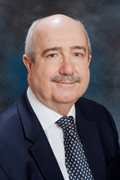 Ran Whitehead is the Chief Executive Officer at PeaceHealth Laboratories. He has enhanced the company’s reputation for technical and clinical excellence, collaborative partnerships, and innovative programs. Ran has led initiatives such as a distance learning program that was later adopted by laboratories across the country. |
|||||||||||||||||||
|
Actions You Can Take to Have Your Lab Viewed as a Profit Center Live Event: Wednesday, April 18, 2017 1:00 - 2:00 PM EDT PACE® Credit available until October 18, 2017 | Florida Lab Credit available |
|
|||||||||||||||||||
|
As clinical management and lab operators, your day may be
consumed with daily operational or service issues. Some days,
it’s about all you can do to get through one more day. It is
hard to set aside time to think strategically or understand what
your laboratory management executive is thinking. This webinar
will reveal the 5 steps you can take to create value and change
the perception of your laboratory and outreach programs by
hospital and health system executives. This webinar will:
Click here to download the article referenced by Dr. Murphy, Good News and Bad News in PAMA Final Rule for Repricing Lab Tests, shared with permission from Laboratory Economics. |
Presenter: Kathleen A. Murphy, PhD, Senior Growth Advisor Chi Solutions, Inc.  Kathleen A. Murphy, PhD, Senior Growth Advisor for Chi Solutions, Inc., an Accumen company, is a noted laboratory expert, speaker, and author. Over her 35 years in laboratory management and consulting, including her former role as the CEO of Chi, Dr. Murphy has gained broad industry experience in laboratory strategy, turnarounds, and outreach. She is the author of The Profit Machine in the Hospital Basement: Turning Your Lab into an Economic Engine (Ellsworth Press, 2016). |
|||||||||||||||||||
|
How Effective Test Utilization Can Support Patient
Safety Live Event: Wednesday, March 29, 2017 1:00 - 2:00 PM EDT PACE® Credit available until September 29, 2017 | Florida Lab Credit available |
|
|||||||||||||||||||
|
Utilization of laboratory services is of constant concern
because of the cost to our health care system, the drain on
laboratory resources, and the waste of valuable time in
diagnosing, treating and managing patients. A recent article in
the Journal of the American Medical Association (JAMA)
suggests that there are also patient safety issues that must be
considered. This webinar will report on the progress of the CDC project known as the Clinical Laboratory Integration into Healthcare Collaborative (CLIHC). This project has been examining how physicians order laboratory tests, what they need to be able to order appropriately and what gaps need to be filled by laboratory professionals. These projects give us a better understanding on what clinicians know about laboratory science and medicine. This presentation will also examine several different approaches to controlling utilization and discuss how to implement utilization programs. The “how” is very dependent on many factors, several of which will be described, that exist in every healthcare setting. This webinar will:
|
Presenter: Elissa Passiment, MT(ASCP), EDM Senior Partner, EP Clinical Laboratory Consulting  Elissa Passiment is a clinical laboratory scientist with over twenty years’ experience in clinical laboratories as staff, educator and manager and another twenty years in health care consulting, association management and health policy. Ms. Passiment has served on the congressionally mandated Negotiated Rulemaking Committee convened to standardize and simplify reimbursement for laboratory services under Medicare Part B; presented testimony to Institute of Medicine studies, and represents ASCLS at meetings with the FDA, CMS, and CDC. |
|||||||||||||||||||
|
Laboratory Test Utilization: Improving Outcomes and
Reducing Costs Live Event: Tuesday, February 28, 2017 1:00 - 2:00 PM EST PACE® Credit available until August 28, 2017 | Florida Lab Credit available |
|
|||||||||||||||||||
|
The nation’s healthcare system has
been steadily shifting from fee-for-service to fee-for-value
models and patient’s centered models. This transition has
created opportunities for clinical diagnostic laboratories to
partner within their healthcare systems on initiatives, such as
improved patient outcomes, lowering readmission rates, and
reducing the cost of patient care. This approach not only
provides benefit to patients and the healthcare system but also
enables laboratories to play a more integrated role in the care
of patients. With the rapid advancement of molecular diagnostic testing, there is an increasing need for the laboratory to provide education and decision algorithms to help mitigate unnecessary testing. Creating guidelines to help clinicians navigate the increasingly complex landscape of molecular diagnostics is another opportunity for the laboratory to support the transition to value based care. Optimal utilization of laboratory testing and the implementation of clinician decision support tools have enabled numerous healthcare systems to lower their laboratory testing expenditures and improve patient care associated with high-risk infections and conditions. The mechanisms for achieving, and the benefits associated with, proper laboratory test utilization can be achieved in a variety of ways. Critical to the success of laboratory test utilization programs is partnering with providers in the development of test plans and protocols. Utilizing a collaborative approach across the organization will help ensure adoption and adherence to new protocols. This presentation will provide information on the how clinical laboratories can utilize testing protocols to help their healthcare systems to reduce costs and achieve goals associated with CMS’ Core Measures and Hospital Consumer Assessment of Healthcare Providers and Systems (HCAHPS) scores. The benefits of enhanced utilization of laboratory testing and the utilization of decision support tools to enable improved patient outcomes will be discussed. Considerations and best practices for effective implementation and adoption of laboratory test utilization programs will be reviewed. This webinar will:
|
Presenter: Eugenio Zabaleta, Ph.D. Clinical Chemist, OhioHealth Mansfield Hospital  Eugenio H. Zabaleta, PhD, is a Clinical Chemist at OhioHealth Mansfield Hospital. He is also Part-time Lecturer at Cleveland State University Graduate Clinical Chemistry Program in Cleveland, OH. He graduated from the Catholic University of Cordoba (Argentina) with a degree in Biochemistry and received his PhD in Chemistry from the University of Akron. His training in Clinical Pathology was at the Hospital Provincial San Roque in Cordoba. In his native country he was the Laboratory Medical Director at the Clinica Del Sol, a clinic devoted to mother-and-child care with neonatology intensive care services. Dr. Zabaleta performed a fellowship at OhioHealth Mansfield Hospital Laboratory. |
|||||||||||||||||||
|
Compliance Considerations for Clinical Laboratories Live Event: Wednesday, January 25, 2017 1:00 - 2:00 PM EST PACE® Credit available until July 25, 2017 | Florida Lab Credit available |
|
|||||||||||||||||||
|
Clinical laboratories provide valuable testing services to their
institutions, patients and communities but are operating in
increasingly complex and competitive environments. Healthcare
reform continues to evolve and with this comes a responsibility
by both the laboratories and clinicians to understand the
compliance requirements associated with providing testing
services. Violation of the laws can put both the laboratory and
clinician at risk for criminal and civil penalties.
Understanding the state and federal statutes associated with
marketing testing services to new and existing clients will
enable clinical laboratories to identify risks associated with
kick-backs and fraud and abuse. To ensure proper use of funds,
Medicare and private payors are increasing the frequency and
depth of the audits to clinical laboratories. These audits are
being performed to ensure medical necessity, proper utilization
of specific test codes and types, as well as proper collection
of co-pays and co-insurance. By understanding the laws and
guidelines, clinical laboratories can develop robust compliance
programs to reduce risks and provide transparency to their
healthcare system, clients and payor network. This presentation will provide an overview to the key laws and statutes as well as address a variety of compliance requirements that clinical laboratories must adhere to mitigate legal and financial risks. Compliance requirements and common issues related to laboratory billing will be identified. Examples of non-compliance will be reviewed. Also addressed within the presentation will be the risks clinical testing laboratories commonly have associated with payor audits. This webinar will:
|
Presenter: Elizabeth Sullivan, Esq. McDonald Hopkins LLC  Elizabeth Sullivan is a member of the firm’s National Healthcare Practice. She began her legal career as an associate in the Healthcare Practice group and recently returned to McDonald Hopkins. For the past four years, Liz served as associate counsel for The Cleveland Clinic Foundation where she provided regulatory advice and transactional guidance to various service lines, including the clinical laboratory, professional pathology, imaging, transplant, and remote and distance health teams. During her career, Liz has assisted clinical laboratories, hospitals, physician specialty groups, telehealth providers, transplant centers, surgery centers, healthcare associations, pharmacies, and other healthcare providers on regulatory, licensing, compliance, reimbursement, contractual, and corporate matters. |
|||||||||||||||||||
|
Clinical Lab Payment Reform under PAMA: Reimbursement, Reporting
and your New Responsibilities Live Event: Wednesday, November 16, 2016 1:00 - 2:00 PM EST PACE® Credit available until May 16, 2017 | Florida Lab Credit available |
|
|||||||||||||||||||
|
On June 23, 2016, the Centers for Medicare & Medicaid
Services (CMS) released a Final Rule implementing Section 216
of the Protecting Access to Medicare Act of 2014 (PAMA),
requiring laboratories performing clinical diagnostic laboratory
tests to report the amounts paid by private insurers for
laboratory tests. Medicare will use these private insurer rates
to calculate Medicare payment rates for laboratory tests paid
under the Clinical Laboratory Fee Schedule (CLFS) beginning
January 1, 2018.* • Definition of applicable laboratories required to report to CMS This presentation will address important provisions of the law,
including the new data reporting responsibilities for applicable
laboratories, details about and timeframes for reporting private
payer information, and information on the annual rate reductions
allowed under the legislation. The presentation will also help
laboratories translate the Final Rule to identify required
actions and potential impacts for their laboratories.
This webinar will:
|
Presenters: Chandra Branham, J.D., VP Advanced Medical Technology Association  Ms. Branham leads the AdvaMed’s policy work in a number of areas, including diagnostics payment, coverage issues, and comparative effectiveness. Ms. Branham has spent most of her career focusing on healthcare regulatory and legislative issues involving Medicare coverage, coding, reimbursement and quality for providers and suppliers of Medicare items and services, including serving as a senior legislative analyst in the Centers for Medicare & Medicaid Services (CMS) Office of Legislation. Julie Khani, Executive VP American Clinical Laboratory Association  Julie Khani joined the American Clinical Laboratory Association, ACLA, in 2013 as Senior Vice President, and was named Executive Vice President in 2016. In her current role Ms. Khani oversees the advocacy, policy and communications functions at ACLA and leads association efforts on implementation of the Clinical Laboratory Fee Schedule (CLFS) provisions of the Protecting Access to Medicare Act. |
|||||||||||||||||||
|
|
||||||||||||||||||||
|
Whitehat Communications is approved as a provider of
continuing education programs in the clinical laboratory sciences by the ASCLS P.A.C.E.® Program. Cardinal Health is approved as a provider of continuing education programs in the clinical laboratory sciences by the ASCLS P.A.C.E.® Program. |
||||||||||||||||||||
|
|
||||||||||||||||||||
|
||||||||||||||||||||
| © 2021 | Whitehat Communications, a division of Martek Inc. | ||||||||||||||||||||
